
20th
conference on
Computational Intelligence methods
for Bioinformatics and Biostatistics
September 10 - 12, 2025 in Milano, Italy
About CIBB
The International Conference on Computational Intelligence Methods for Bioinformatics and Biostatistics (CIBB) was established in 2004 through the efforts of its co-founders Roberto Tagliaferri (Università degli Studi di Salerno, Italy), Francesco Masulli (Università di Genova, Italy), and Antonina Starita (Università di Pisa, Italy). Initially introduced as a special session during the 14th Italian Workshop on Neural Networks (WIRN 2004) in Perugia, Italy, CIBB quickly evolved into an internationally recognized event. For its first four editions, the conference was organized as a special session within various international events held in Italy. In October 2008, CIBB became an independent conference, with its inaugural standalone edition taking place in Vietri sul Mare, Italy. Sadly, this milestone coincided with the passing of Antonina Starita (1939–2008), one of its visionary founders.
CIBB serves as a multidisciplinary platform for researchers exploring the application of Computational Intelligence techniques, broadly defined, to challenging problems in bioinformatics, biostatistics, and medical informatics. Since its foundation, CIBB has produced 13 proceedings books, 4 sections of proceedings books, and 11 journal supplements, amounting to approximately 400 peer-reviewed scientific contributions (see past editions). While traditionally held every two years, CIBB 2023, hosted in Padova, marked a return to in-person gatherings after the virtual format of 2021. The 2024 edition hosted in Benevento marked the start of an annual schedule for CIBB.
CIBB welcomes submissions highlighting emerging trends and future directions at the intersection of computational and life sciences, with particular interest in the application of computational intelligence to systems and synthetic biology. Contributions from theoretical and experimental biologists are highly encouraged to promote interdisciplinary collaboration. Authors are invited to submit short papers (4–6 pages) presenting their original research in areas such as bioinformatics, biostatistics, systems and synthetic biology, and medical informatics. Accepted papers will be featured in plenary oral sessions or dedicated special sessions.
Where
Politecnico di Milano, Campus Leonardo, Building 3 - room 3.0.3,
Piazza Leonardo da Vinci, 32
When
10-12 September 2025Local Organizers
Data Science for Bioinformatics labDepartment of Electronics, Information and Bioengineering Politecnico di Milano
Gallery
Further photos of CIBB 2025 event are available at: https://drive.google.com/drive/folders/1e8DL0yzE_3jVdPFFvwVK8NgFq5heSD3P?usp=sharing
Research Tracks
Main tracks
Bioinformatics
Topics of interest include, but are not limited to:
- Applications of machine learning to bioinformatics or health datasets
- Data mining methods in biomedical contexts
- Artificial intelligence in biomedicine
- Next-generation sequencing bioalgorithms
- Multi-omics data analysis
- Statistical analysis of high-dimensional omics data
- Algorithms for alternative splicing analysis
- Methods for visualization of high-dimensional biomedical data
- Software tools for bioinformatics
- Methods for comparative genomics
- Computational tools for proteomics
- Simulation of biological systems and clinical populations
- Methods for the functional classification of genes
- Algorithms for molecular evolution and phylogenetic analysis
- Methods for unsupervised analysis, validation, and visualization of structures discovered in bio-molecular data
- Health informatics and medical informatics
- Biomedical and microscopy imaging
- Methods for the integration of clinical, genetic, or environmental data
- Heterogeneous data integration and data fusion
- Algorithms for pharmacogenomics
- Biomedical text mining and natural language processing
- Bayesian methods for medical and biological data
- Health big data analytics
- Data-driven approaches for patient stratification, and prognosis or onset prediction
- Process mining in healthcare
- Information retrieval, and temporal and spatial representation and reasoning in biomedicine
- Simulation models, software, and tools (clinical decision support systems, patient engagement support, visual analytics, solutions for assisted living, and telemedicine)
- Biomedical signal processing
- Explainable AI and clinical model interpretation
- Personalised medicine for diagnosis and prognosis
- Statistical methods for the analysis of clinical data
- Prediction of secondary and tertiary protein structures
- Advanced pathway enrichment analysis methods
- Mass spectrometry data analysis in proteomics
- Bio-molecular databases and data mining
- Mathematical modelling and automated reasoning on biological and synthetic systems
- Computational simulation of biological systems
- Methods and advances in systems biology
- Spatio-temporal analysis of synthetic and biological systems
- Network systems biology
- Models for cell populations and tissues
- Methods for the engineering of synthetic components
- Modelling and engineering of interacting synthetic and biological systems
- Software tools for bioinformatics, biostatistics, systems and synthetic biology
- Computational drug discovery
- Operational research in healthcare and bioinformatics
Biostatistics
Topics of interest include, but are not limited to:
- Statistical analysis of high-dimensional omics data
- Methods for comparative genomics
- Health informatics and medical informatics
- Bayesian methods for medical and biological data
- Health big data analytics
- Data-driven approaches for patient stratification, and prognosis or onset prediction
- Statistical methods for the analysis of clinical data
- Advanced pathway enrichment analysis methods
Medical Informatics
Topics of interest include, but are not limited to:
- Artificial intelligence in biomedicine
- Health informatics and medical informatics
- Biomedical and microscopy imaging
- Methods for the integration of clinical, genetic, or environmental data
- Heterogeneous data integration and data fusion
- Biomedical text mining and natural language processing
- Health big data analytics
- Information retrieval, and temporal and spatial representation and reasoning in biomedicine
- Simulation models, software, and tools (clinical decision support systems, patient engagement support, visual analytics, solutions for assisted living, and telemedicine)
- Explainable AI and clinical model interpretation
- Personalised medicine for diagnosis and prognosis
- Process mining in healthcare
- Computational drug discovery
- Operational research in healthcare and bioinformatics
Special Session tracks
1 - Machine Learning for Structured Data in Clinical Informatics and Medical Biology
Topics of interest include, but are not limited to:
- Machine learning methods applied to health care and biomedical datasets
Short description:
Machine learning has become a pivotal tool for analyzing biomedical and biological datasets, especially in the Big Data era. In fact, machine learning algorithms can identify hidden relationships and structures in health care data, and leverage them to formulate accurate predictions about similar or future data instances. For example, machine learning software has been able to predict the diagnoses of patients with cancer simply by processing patients' clinical features, allowing scientists to save time and money compared to traditional wet-lab experiments. Computational researchers have also utilized machine learning to infer knowledge about patients by analyzing biological datasets, particularly those featuring genetics and epigenomic traits. Data mining approaches applied to such datasets can lead to significant discoveries, enhancing our understanding of molecular biology and providing new insights into patients’ diseases. Moreover, recent advancements in this context foresee the exploitation of clinical knowledge, represented in different forms such as medical protocols, by defining methods to integrate and inject such knowledge into machine learning algorithms. This way, the best of both approaches (knowledge-based and data-based) can be leveraged. Our special session on ""Machine learning for structured data in clinical informatics and medical biology"" aims to advance these scientific fields by inviting researchers to demonstrate the potential and advancements of machine learning algorithms in making accurate computational predictions in healthcare datasets and patient-oriented biological datasets.Special Session Proposers
- Davide Chicco, Università degli Studi di Milano-Bicocca, Italy.
- Giuseppe Jurman, Fondazione Bruno Kessler, Italy.
- Wei Liu, Fujian Agriculture and Forestry University, China.
- Matthijs Warrens, Rijksuniversiteit Groningen, the Netherlands.
- Luca Oneto, Università di Genova, Italy.
- Davide Bacciu, Università di Pisa, Italy.
- Sara Montagna, Università di Urbino "Carlo Bo", Italy.
Contacts
davide.chicco@gmail.com2 - Networks and Graph Neural Networks for Bridging Bioinformatics and Medicine
Topics of interest include, but are not limited to:
- Network-based approaches in bioinformatics (e.g., protein-protein interaction networks, metabolic pathways, regulatory networks)
- Graph Neural Networks in biomedical applications (e.g., disease diagnosis, drug repurposing, patient stratification)
- Multi-omics data integration using networks and GNNs
- Graph representation learning for medical imaging and diagnostics
- Explainability and interpretability of GNNs in healthcare
- Scalability and efficiency of graph-based models in biomedical big data
- Applications of network science in epidemiology and public health
- Ethical considerations and bias in network-driven biomedical AI
Short description:
We are pleased to invite submissions to the Special Session on Networks and Graph Neural Networks for Bridging Bioinformatics and Medicine. The rapid advancements in network science and graph-based deep learning have revolutionized biomedical research. Complex biological systems, including protein interactions, gene regulatory networks, and disease ontologies, can be effectively modeled using networks. Graph neural networks (GNNs) further provide a powerful framework to learn from these structures, enabling significant progress in disease classification, drug discovery, and precision medicine. This special session aims to bring together researchers and practitioners from bioinformatics, medicine, and artificial intelligence to explore how networks and GNNs can bridge the gap between computational methods and clinical applications. We encourage contributions that develop new methodologies, provide novel applications, or highlight challenges and future directions in the field. We welcome submissions on, but not limited to, the following topics:Special Session Proposers
- Pietro Hiram Guzzi, Magna Græcia University of Catanzaro, Italy.
- Ugo Lomoio, Magna Græcia University of Catanzaro, Italy.
- Barbara Puccio, Magna Græcia University of Catanzaro, Italy.
- Annamaria De Filippo, Magna Græcia University of Catanzaro, Italy.
- Pierangelo Veltri, Magna Græcia University of Catanzaro, Italy.
- Patrizia Vizza, Magna Græcia University of Catanzaro, Italy.
Contacts
hguzzi@unicz.it3 - Generative AI in Translational Bioinformatics
Topics of interest include, but are not limited to:
- Applications of Generative AI in Translational Bioinformatics:
- Personalized medicine and tailored treatment plans
- Drug discovery acceleration through AI-driven molecular simulations
- Predictive analytics for disease progression and patient risk assessment
- Virtual clinical trials and AI-enhanced biomedical research
- Methodological Advances in Generative AI for Bioinformatics:
- Advancements in deep learning frameworks (VAEs, GANs, Diffusion Models) for biomedical data synthesis
- Transformer models for biomedical text and protein sequence generation
- Conditional and query-based data generation tailored to patient-specific clinical features
- Metrics for validating synthetic high-dimensional and complex biomedical data
- Real-world applications of synthetic data to enhance clinical decision-making and precision medicine
- Ethical, Societal, and Computational Challenges:
- Data privacy concerns and strategies for secure AI implementations
- Algorithmic bias and fairness in AI-driven biomedical predictions
- Interpretability and explainability of generative models in healthcare
- High computational costs and approaches to improving efficiency
- Future Directions in AI-Driven Bioinformatics:
- Enhancing AI for real-time decision-making in clinical applications
- Integrating generative AI with multi-omics data for precision medicine
- Frameworks for theethical use and governance of generative AI in biomedicine
Short description:
Generative AI is transforming translational bioinformatics by enabling the synthesis, integration, and analysis of biological data for improved healthcare outcomes. This session will explore how advanced generative models, including deep learning and neural networks, enhance various biomedical applications, such as personalized medicine, drug discovery, and predictive analytics. By facilitating complex data integration, generative AI is reshaping bioinformatics research, allowing scientists to extract meaningful insights from vast genomic, clinical, and molecular datasets. As this technology gains prominence, it presents both groundbreaking opportunities and significant challenges. While generative AI can mitigate data imbalance, enhance predictive modeling, and streamline healthcare operations, concerns remain regarding data privacy, algorithmic bias, and interpretability. Furthermore, the computational demands of deep generative models and the need for robust generalization to unseen data complicate their adoption in biomedical research. This session will provide a forum for researchers and trainees to discuss the latest advancements, share case studies, and address the challenges associated with the responsible implementation of generative AI in translational bioinformatics."Special Session Proposers
- Jake Chen, The University of Alabama at Birmingham, USA.
- Pietro Pinoli, Department of Electronics, Information, and Bioengineering, Politecnico di Milano, Italy.
- Matteo Bregonzio, 81Watts.
- Marco Chierici, Fondazione Bruno Kessler, Italy.
- Giuseppe Jurman, Fondazione Bruno Kessler; Humanitas University, Italy.
- Raffaele Marchesi, Fondazione Bruno Kessler; Università degli Studi di Pavia, Italy.
- Shahryar Noei, Fondazione Bruno Kessler, Italy.
- Francesca Pia Panaccione, Department of Electronics, Information, and Bioengineering, Politecnico di Milano, Italy.
- Matteo Pozzi, Fondazione Bruno Kessler, Italy.
Contacts
- jakechen@uab.edu
- pietro.pinoli@polimi.it
4 - HPCAIG - High Performance Computing for AI-driven Genomics
Topics of interest include, but are not limited to:
- Deep Learning for Genomic Data Modeling
- Generative Models for Synthetic Genomes Generation
- Computer vision Integration in Computational Genomics
- Modeling Genome and Pangenome Large Scale Graphs with Graph Neural Networks
- Leveraging Large Language Models (LLMs) in Genomic Data Science
- Explainable AI in Genomics: Methods and Applications
- High-Performance Computing for Scalable Genomic Workflows
Short description:
The growing availability of genomic data represents both a vast resource and a significant computational challenge. This enormous volume of data provides valuable insights into the DNA structure of organisms. However, processing a massive amount of genomics sequences demands substantial computational power. High-Performance Computing (HPC) infrastructures have become pivotal for efficiently exploring, analyzing, and interpreting large genomic collections, enhancing advancements across all fields of computational genomics. Moreover, GPU-accelerated computing enables highly parallelized operations, significantly enhancing the efficiency of deep learning models, large-scale sequence alignments, and genomic simulations. The scope of this special session consists of bringing together researchers working at the intersection of deep learning, High-Performance Computing (HPC) including GPU-accelerated computing, alongside genomic data modeling and analysis. By focusing on the integration of advanced computational techniques with genomic research, the session aims to foster collaboration and innovation in developing new methodologies for tackling the challenges posed by large-scale genomic datasets.Special Session Proposers
- Umberto Ferraro Petrillo, Dipartimento di Scienze Statistiche, Università di Roma - La Sapienza, Italy.
- Lorenzo Di Rocco, Dipartimento di Scienze Statistiche, Università di Roma - La Sapienza, Italy.
- Ilaria Billato, Dipartimento di Biologia, Università di Padova, Italy.
- Riccardo Ceccaroni, Dipartimento di Scienze Statistiche, Università di Roma - La Sapienza, Italy.
- Emanuel Di Nardo, Dipartimento di Scienze e Tecnologie, Università di Napoli - Parthenope, Italy.
Contacts
umberto.ferraro@uniroma1.it5 - Uncertainty and Data Visualization in Deep Learning Applications
Topics of interest include, but are not limited to:
- Prediction uncertainty in Health informatics
- Methods for the visualisation of out-of-distribution samples
- Explainable AI
- AI data visualisation
- Out-of-distribution recognition
- Metrics for model evaluation and sample prediction
- Unknown sample prediction techniques
- Mathematical modelling of out-of-distribution recognition
- Open-set versus closed-set recognition
- Application of out-of-distribution recognition
- Methods for active learning
Short description:
To prevent wrong predictions of a Neural Network, we need to better understand and/or visualize the confidence of each individual prediction. For this reason, we ask the community, what happen if a model must predict an out-of-distribution sample/image in an open-world/life scince scenario? In other words, how a model defines a certain in-distribution (test data is assumed to be drawn from the training data), to detect an out-of-distribution event. How explainable deep learning can help us to understand the model prediction performance? In fact, a model can cause prediction failures due to its blindness and poor awareness. Moreover, it conveys high confident in its correctness, which can be problematic for wide range of applications, such as for healthcare applications. For instance, standard metrics for the evaluation of Deep Learning models measure overall model performance on a limit test dataset and provide no indication of the model confidence in the correctness of an individual prediction of new samples. That can result in prediction failure, when a model is faced with out-of-distribution data. Therefore, we should question our self. How can we detect and visualize data to reduce uncertainty in deep learning? The scope of this special session is to ask the research community how they validate and/or visualize their prediction outcome and how we can better predict out-of-distribution samples in the future.Special Session Proposers
- David Dannhauser, University of Naples (Federico II), Italy.
- Filippo Causa, University of Naples (Federico II), Italy.
- Pasquale Memmolo, Istituto di Scienze Applicate e Sistemi Intelligenti “Eduardo Caianiello", Italy.
- Roberto Tagliaferri, University of Salerno, Italy.
Contacts
david.dannhauser@unina.it6 - AI in Medical Imaging: Radiomics and Explainable Deep Learning
Topics of interest include, but are not limited to:
- Machine learning and deep learning applications in medical imaging
- Explainable Deep Learnig/Machine learning
- Decision Support System based on Deep Learning system
- AI-driven image segmentation and feature extraction
- Automated lesion detection and classification
- Predictive modeling with radiomic biomarkers
- Standardization and reproducibility in radiomics research
- AI in oncology: tumor characterization and treatment response assessment
Short description:
Artificial Intelligence (AI) in medical imaging is revolutionizing diagnostics and prognostics by enabling automated, quantitative analysis of scans, providing clinicians with a valuable decision-support tool. Radiomics plays a key role by extracting high-dimensional quantitative features from images, capturing disease heterogeneity, metabolism, and microenvironment patterns. When integrated with machine / deep learning methods, radiomic biomarkers enhance personalized medicine by predicting outcomes, therapy response, and disease progression. Precisely, deep learning has significantly advanced image classification, improving segmentation, anomaly detection, and predictive modeling. Architectures like ResNet, EfficientNet, and Vision Transformers have strengthened model accuracy and efficiency. However, clinical adoption still faces some challenges, including data standardization, external validation, and model interpretability. Explainable Deep Learning (XDL) helps address these challenges by enhancing transparency and trust, enabling the understanding and justification of deep learning model predictions. Common techniques include activation maps, Grad-CAM, and SHAP (Shapley Additive Explanations), which support clinicians to understand and validate AI-driven decisions. By improving model traceability and reducing biases, XDL fosters collaboration between AI and healthcare professionals, ensuring safer and more ethical applications. By integrating imaging, computational intelligence, and clinical expertise, AI is driving the future of precision medicine, enhancing diagnostic accuracy, and enabling more personalized and effective patient care.Special Session Proposers
- Ignacio Rojas, University of Granada, Spain.
- Carolina Bezzi, Vita-Salute San Raffaele University, Milan, Italy.
- Olga Valenzuela, University of Granada, Spain.
- Samuele Ghezzo, Vita-Salute San Raffaele University, Milan, Italy.
- Maria Picchio, Vita-Salute San Raffaele University, Milan, Italy.
- Paola Mapelli, Vita-Salute San Raffaele University, Milan, Italy.
- Sara Resta, Vita-Salute San Raffaele University, Milan, Italy, and Politecnico di Milano, Italy.
Contacts
- irojas@ugr.es
- bezzi.carolina@hsr.it
7 - Integrative AI for Multi-Omics and Multi-Modal Biomedical Data for Precision Healthcare
Topics of interest include, but are not limited to:
- AI and machine learning for multi-omics and multimodal data integration
- Computational and statistical approaches for heterogeneous data fusion
- Deep learning models for biomarker discovery and disease characterization
- Explainable AI and interpretable models in healthcare decision-making
- Integration across omics layers and meta-analysis across multiple cohorts
- Predictive modeling for patient stratification and disease progression
- Biomedical signal and image processing using AI
- Federated learning approaches for decentralized medical data
- Natural Language Processing (NLP) for mining clinical and EHR data
- Computational drug discovery and pharmacogenomics through AI
- Integration techniques supporting Digital Twin models in precision healthcare
- Challenges and future directions in large-scale data fusion for biomedical research
Short description:
The explosion of high-throughput technologies has resulted in vast amounts of multi-omics and multimodal biomedical data, ranging from genomics, proteomics, and metabolomics to imaging, electronic health records (EHRs), and real-world sensor data. Integrating these diverse data sources is essential to unravel complex biological mechanisms, drive biomarker discovery, and advance precision medicine. However, the heterogeneity and complexity of these datasets pose significant challenges. This special session aims to bring together experts in computational biology, AI, and biomedical research to discuss cutting-edge integrative methodologies for multi-omics and multimodal data fusion. The session will focus on advanced statistical modeling, machine learning, and deep learning approaches that preserve the unique contributions of each data type while enabling holistic biological and clinical insights. Additionally, we will explore the translation of these integrated models into practical applications in personalized medicine, disease modeling, and healthcare optimization, including their role in developing Digital Twin frameworks for precision health.Special Session Proposers
- Annamaria Carissimo, Institute for Applied Mathematics of the National Council for Research, Naples, Italy.
- Antonella Iuliano, University of Cambridge, UK.
- Lidia Ghosh, Department of Computer Application at the RCC Institute of Information Technology, Kolkata, India.
- Biswarup Ganguly, Department of Electrical Engineering at NIT Silchar, India.
Contacts
- annamaria.carissimo@cnr.it
- lidiaghosh21@gmail.com
8 - Spatial Omics Data Analysis
Topics of interest include, but are not limited to:
- Spatial proteomics
- Spatial transcriptomics
- Spatial fluxomics
- Spatial metabolomics
- Tissue Architecture
- Spatial omics data analysis (data integration, clustering, neighborhood, organization)
Short description:
In the single-cell biology era spatial approaches have become fundamental for understanding biological complexity. This has been established by some of the last Nature Methods of the Year (2024- Spatial Proteomic, 2020 Spatially Resolved Transcriptomics). Under the umbrella of Spatial-omics a variety of different techonologies are encompassed, each of them requiring a dedicated bioinformatic approach. The aim of this special session is to bring together researchers who are working on the development of methods and models in the fields of spatial omics data analysis to facilitate the exchange of knowledge and ideas in this innovative and fundamental research area.Special Session Proposers
- Maddalena Maria Bolognesi, National Research Council, Italy
- Bruno Giovanni Galuzzi, National Research Council, Italy
- Chiara Damiani, Università degli studi di Milano-Bicocca, Italy
- Francesco Lapi, Università degli studi di Milano-Bicocca, Italy
- Lorenzo Dall’Olio, Istituto delle Scienze Neurologiche, Bologna, Italy
Contacts
brunogiovanni.galuzzi@cnr.it9 - Development, Evaluation, and Interpretation of Predictive Algorithms and Models in Biomedical Research
Topics of interest include, but are not limited to:
- Predictive models
- net benefit
- discrimination
- calibration
- uncertainty
- regression models
- machine learning
Short description:
There has been a rapid increase in publication of new predictive models in biomedical literature. This has been driven mainly by the widespread availability of data from electronic health record, alongside with routine collection and processing of genetic, genomic, and imaging data. Additionally, the growing application of machine learning and artificial intelligence methods in the biomedical field has played a key role. These advanced techniques enable the inclusion of a broader range of variables, which can enhance prediction models by capturing more detailed and nuanced patterns within the data. However, this growth in prediction modeling also brings about certain methodological challenges. This session would reflect on sources of uncertainty when applying predictive algorithms and models in medical care, on their methodological challenges and clinical utility.Special Session Proposers
- Paola Rebora, Università degli Studi di Milano-Bicocca, Italy.
Contacts
paola.rebora@unimib.it10 - Explainable AI in Bioinformatics and Biostatistics
Topics of interest include, but are not limited to:
- Interpretable learning architectures
- XAI in healthcare
- XAI in decision science
Short description:
The rapid integration of Artificial Intelligence (AI) in bioinformatics and biostatistics has led to groundbreaking advancements in data analysis, predictive modeling, and decision support systems. However, the complexity of AI models often poses significant challenges in terms of interpretability and transparency, which are critical for clinical and biomedical applications. This special session focuses on Explainable AI (XAI) methodologies tailored for bioinformatics and biostatistics, emphasizing techniques that enhance model interpretability while maintaining predictive performance. We welcome contributions on model-agnostic and model-specific XAI approaches, including feature attribution methods, rule-based systems, and interpretable deep learning architectures. Applications may include—but are not limited to—genomic and transcriptomic data analysis, survival modeling, biomarker discovery, and personalized medicine. By bringing together researchers and practitioners from AI, bioinformatics, and biostatistics, this session aims to foster discussion on best practices for integrating explainability into complex models. Topics of interest include novel XAI frameworks, fairness and bias assessment in biomedical AI, regulatory considerations, and real-world case studies demonstrating the impact of XAI in healthcare. We invite original research and innovative applications that contribute to bridging the gap between AI-driven discoveries and their interpretability, ensuring transparency, trust, and usability in biomedical decision-making.Special Session Proposers
- Elia Biganzoli, Università Statale di Milano, Italy.
- Paulo Lisboa, Liverpool John Moores University, UK.
Contacts
elia.biganzoli@unimi.it11 - Robotics with AI in Medicine
Topics of interest include, but are not limited to:
- Surgery and Minimally Invasive Procedures
- Artificial Intelligence for Healthcare
- Rehabilitation and Physical Therapy
- Telemedicine and Remote Care
- Cognitive Robotics
- Collaborative Robotics
- Human-robot interaction
- Ontology in Healthcare
- Diagnostic Imaging and Radiology
- Patient Assistance and Elderly Care
- Medicine Distribution
- Patient Monitoring
Short description:
AI techniques are being increasingly integrated into robots to improve their performance and enhance their capabilities, especially in the medical field. An example of an application of AI in medical robotics is in surgical procedures. AI can be used to improve surgical planning, navigation, and execution. AI techniques can also be used to control the motion of surgical instruments, ensuring precise and accurate movements during the procedure. AI algorithms can be trained to analyze medical images and identify potential abnormalities or diseases. In telemedicine, AI is being used to control computer systems for remote healthcare services. Large datasets can be used to train machine learning algorithms to improve their accuracy and reliability and can also be used to update and refine their performance over time continuously. This allows medical robots to provide more accurate results and can also help reduce the risk of human error. Thus, this special session focuses on the important role of robots with AI in contemporary medicine.Special Session Proposers
- Daniela D'Auria, Department of Engineering and Sciences of the Universitas Mercatorum, Italy.
Contacts
daniela.dauria@unimib.it12 - Unraveling the Genomic Code: Statistical and Computational Advances in Complex Trait Epidemiology
Topics of interest include, but are not limited to:
- Statistical analysis of high-dimensional omics data
- Health big data analytics
- Software tools for bioinformatics, biostatistics, systems and synthetic biology
- Applications of machine learning to bioinformatics or health datasets"
Short description:
The study of complex traits, influenced by multiple genetic variants and environmental factors, remains a key challenge in genomic epidemiology. The integration of high-dimensional omics data with phenotypic information has revolutionized our ability to uncover genetic risk markers, biological mechanisms, and higher-order interactions in large-scale health datasets. This session will explore advanced statistical and computational approaches for analyzing complex traits, leveraging cutting-edge analytical frameworks to better understand the intricate genetic architecture of complex diseases and traits. Emphasis will be placed on innovative statistical epidemiological methods in high-dimensional omics analysis and machine learning applications. Additionally, the session will provide a forum to discuss innovative solutions and novel methodologies, including polygenic risk scores, phenome-wide association studies, Mendelian randomization, imputation techniques, pharmacoepidemiological analytics, multi-omics data analysis and computational models for detecting interactions in high-dimensional genomic data.Special Session Proposers
- Erika Salvi, Data Science Center and Computational multi-Omics of Neurological Disorders (MIND) Lab, IRCCS Istituto Neurologico “Carlo Besta”, Italy
- Carlo Maj, Center for Human Genetics, University of Marburg, Germany
Contacts
erika.salvi@istituto-besta.it13 - Cutting-Edge Statistical Approaches to Environmental Epigenetics Data
Topics of interest include, but are not limited to:
- Advanced regression models tailored to epigenetic data
- Machine learning techniques for high-dimensional datasets
- Integration of multi-omics data (e.g., genomics, transcriptomics, proteomics)
- Methods for managing data heterogeneity and batch effects
- Approaches to address multiple testing and improve reproducibility
- Statistical frameworks for analyzing environmental exposure impacts
- Causal inference models in environmental epigenetics
- Computational pipelines and tools for epigenomic data analysis
- Data visualization techniques for complex epigenetic interactions
Short description:
In recent years, the field of epigenetics has undergone rapid development, revealing how environmental exposures can lead to modifications in gene expression without altering the underlying DNA sequence. This special session is designed to address the complex statistical challenges inherent in analyzing environmental epigenetics data and to foster innovative approaches for interpreting these high-dimensional datasets. This session aims to unite experts from biostatistics, computational biology, epigenetics, and environmental health. Our primary objectives are to refine statistical methodologies for managing data heterogeneity, tackle issues related to multiple testing, and enhance reproducibility in epigenomic studies. We seek to develop robust statistical frameworks that can be applied to uncover the intricate interplay between environmental exposures and epigenetic modifications. Participants will explore a range of topics including advanced regression models, machine learning techniques, and the integration of multi-omics data. The session will highlight novel statistical approaches that not only address current analytical challenges but also pave the way for future research. By delving into the latest methodological advancements, we will provide a comprehensive overview that spans theoretical foundations to practical applications, encouraging interdisciplinary dialogue and collaboration. By combining cutting-edge statistical techniques with practical applications, this session aspires to deepen our understanding of the epigenetic mechanisms driving environmental influences. The anticipated impact includes improved public health outcomes through more accurate predictive models and the advancement of personalized medicine. Ultimately, the insights gained here are expected to inspire innovative research directions and enhance collaborative efforts across diverse scientific disciplines.Special Session Proposers
- Elia Biganzoli, Università Statale di Milano, Italy.
- Valentina Bollati, Università Statale di Milano, Italy.
Contacts
elia.biganzoli@unimi.it14 - Diseases Modeling using Health Electronic Records
Topics of interest include, but are not limited to:
- Survival analysis
- state transition models
- competing events
- multi-state models
- prediction models
- case detection
- regression models
Short description:
The increasing availability of data from electronic health records and the more routine collection and processing of genetic, genomic, and imaging data has led to increasingly large data sources that have the potential for improving healthcare outcomes, research, and policy decisions. Statistical models as well as machine learning technics have the potential to be useful in a deeper understanding of the underlying processes of disease, progression, and risk factors. The use of electronic health records integrated with additional data sources, including longitudinal markers, gives the possibility to follow the life history of individuals and describing state transitions (e.g. illness-death models), provided that information in time is correctly modeled. The analysis of this type of data is often complicated by various issues including multiple possible competing events, event type misclassification, and imprecise measurement of variables and event times. Moreover, transition might be driven by longitudinal markers or variables that change value in time. The session will aim to show different approaches to deal with the complexity of the modeling of disease state transitions using electronic health records.Special Session Proposers
- Paola Rebora, Università degli Studi di Milano-Bicocca, Italy.
Contacts
paola.rebora@unimib.it15 - Modeling and Simulation Methods for Computational Biology and Systems Medicine
Topics of interest include, but are not limited to:
- Parameterization and verification of biomedical models
- Individual-aware models to assess the impact of genetic variation on cellular regulatory network
- Cancer progression models
- Epidemiological models
- Multiscale models and simulation of biological systems
- Space-temporal models and simulation of biological systems
- Robustness of cellular networks
- Emergent properties in complex biological systems
- Metabolic and signaling pathways analysis and engineering
- Genetic variants impact on epigenetic elements
- Models for personalized and targeted therapies
- Patient classification and stratification
- Drug combination, repositioning, and recommendation for personalized medicine
- Clinical data integration into systems biology models
- Single-cell and spatial transcriptomics analysis
Short description:
Computational biology is a field that involves the analysis of biological systems at various levels of complexity, using appropriate modeling frameworks and computational methods. With the advancement of computational biology approaches and modeling systems, the current challenge is to employ these techniques to define personalized models that identify tailored drugs and therapies, thus realizing the personalized medicine paradigm. This special session aims to bring together researchers who are working on the development of methods and models applied in the fields of computational biology and systems medicine to facilitate the exchange of knowledge and ideas in these innovative and fundamental research areas. The workshop will be sponsored by the National Biodiversity Future Center (NBFC) (https://www.nbfc.it/).Special Session Proposers
- Simone Avesani, Università di Verona, Italy
- Gospel Ozioma Nnadi, Università di Verona, Italy
- Roberta Sirovich, Università di Torino, Italy
- Michele Tebaldi, Università di Verona, Italy
- Manuel Tognon, Università di Verona, Italy
- Eva Viesi, Università di Verona, Italy
Contacts
eva.viesi@univr.it16 - Brain Criticality: Unlocking Neural Complexity for Diagnostics and Neurotechnology
Topics of interest include, but are not limited to:
- Biomedical signal processing, Personalised medicine for diagnosis and prognosis
Short description:
Aims This special session explores how the brain operates near criticality, a delicate balance between order and chaos that optimises neural adaptability and function. We use advanced computational approaches to bridge theoretical neuroscience with practical diagnostics, neurostimulation, and brain-computer interface (BCI) applications. The session will bring together experts to discuss how complexity-based methods can improve our understanding of brain health and pathology, leading to innovative clinical and technological advances. Scope Key topics will include:- The role of criticality in brain function, from consciousness research to neurodevelopmental, psychiatric and neurodegenerative disorders.
- Novel signal processing techniques to improve BCI performance by increasing decoding accuracy and brain state classification.
- Personalised non-invasive brain stimulation (NIBS) strategies that adapt to individual neural dynamics for optimised therapeutic outcomes.
- Multimodal integration of EEG, MEG, fMRI and TMS-EEG with computational models to uncover new brain function and dysfunction biomarkers.
Special Session Proposers
- Camillo Porcaro, Neuroscience Departmant (DNS) and Padova Neuroscience Center (PNC), Università degli Studi di Padova, Italy.
Contacts
camillo.porcaro@unipd.it17 - Computational Methods for Mental Health and Well-Being
Topics of interest include, but are not limited to:
- Computational models for early detection of mental health issues
- Computational tools for continuous monitoring
- Computational models for personalized interventions
- Computational models for disease risk stratification
- Computational models for multimodal data analysis
- Computational models for emotion recognition
- Bias and Fairness in Mental Health and Well-being AI
Short description:
The development of computational methods specifically designed for mental health and well-being is critical to address global challenges ensuring an ethical, transformative impact on user outcomes. These methods could provide insights into understanding, diagnosing, and monitoring mental health conditions, by delivering personalized and cost-effective solutions to improve health outcomes and quality of care, and enabling early intervention, real-time support, and long-term well-being. They could analyze and integrate data from brain activity, behavior, and symptom patterns to explain underlying mechanisms of psychological responses, as well as possible neuropsychiatric pathways and trajectories of care for mental disorders. However, the adoption of computational models in this specific context, opens several challenges that should be addressed, ranging from the need of high-quality datasets, that requires continuous interplay among researchers of different disciplines, to the design of systems that protect user privacy, ensure equity, and prevent algorithmic biases in sensitive mental health applications, to name a few. The special session on ""Computational Methods for Mental Health and Well-Being"" aims to provide a cross-disciplinary exchange that combines computer science, psychology, mental healthcare, and ethics, reflecting the growing importance of technology in improving mental well-being, and stimulating collaborative discussions that might focus on integrating computational methods into healthcare systems, and identifying gaps in research or applications, discussing the opportunities and risks presented by the technology adoption to manage very sensitive data.Special Session Proposers
- Francesca Gasparini, Dipartimento di Informatica, Sistemistica e Comunicazione, Università degli Studi di Milano-Bicocca, Italy.
- Cristina Crocamo, Dipartimento di Medicina e Chirurgia, Università degli Studi di Milano-Bicocca, Italy.
- Anna Maria Bianchi, Dipartimento di Elettronica, Informazione e Bioingegneria, Politecnico di Milano, Italy.
Contacts
francesca.gasparini@unimib.it18 - Computational Methods for Microbiological Research
Topics of interest include, but are not limited to:
- Sequence Assembly and Annotation
- Comparative Genomics
- Metagenomic Analysis
- Pangenomics
- Machine Learning in Microbiology
- Network Analysis
- Microbiome Research
- Antimicrobial Resistance
- Microbial Ecology
- Data Visualization and Integration
Short description:
This special session explores computational approaches driving advancements in our understanding of the microbial world. Microbes play crucial roles in diverse ecosystems, from human health and disease to biogeochemical cycles and industrial processes. Unlocking their secrets requires sophisticated computational tools capable of analyzing the massive datasets generated by modern sequencing technologies. This session aims to showcase the latest computational intelligence methods applied to microbial genomics, pangenomics, and metagenomics. We invite submissions that address, but are not limited to: novel algorithms for sequence assembly and annotation, machine learning approaches for predicting microbial function and interactions, network analysis for exploring microbial communities, and statistical methods for comparative genomics and metagenomic data analysis. We particularly encourage contributions that tackle the challenges of data integration, visualization, and interpretation in the context of complex microbial datasets. The scope of this session encompasses diverse applications of computational microbiology, including: understanding the role of the microbiome in human health and disease, discovering novel antimicrobials and therapeutic targets, engineering microbial communities for biotechnological applications, and assessing the impact of environmental changes on microbial ecosystems. This special session will have an impact by resulting in a better understanding of microbial life and its effects on our planet. It will serve as a forum for information sharing, the development of fresh partnerships, and the inspiration of future lines of inquiry in this quickly developing field.Special Session Proposers
- Vincenzo Bonnici, Department of Mathematical, Physical and Computer Sciences, University of Parma, Italy.
- Alessia Levante, Department of Food and Drug, University of Parma, Italy.
- Gabriele Andrea Lugli, Laboratory of Probiogenomics, Department of Chemistry, Life Sciences and Environmental Sustainability, University of Parma, Italy.
- Christian Milani, Laboratory of Probiogenomics, Department of Chemistry, Life Sciences and Environmental Sustainability, University of Parma, Italy.
Contacts
vincenzo.bonnici@unipr.it19 - Informatics Research in Bioinformatics
Topics of interest include, but are not limited to:
- Computational transcriptomics and spatial transcriptomic data analysis
- Single-cell and Multi-omics data analysis and models
- Computational pangenomics
- High-performance computing for omics data
- Algorithms and data structures for bioinformatics
- Knowledge management in bioinformatics and medical informatics
- Drug development and pharmacovigilance
- Artificial intelligence and machine learning in bioinformatics
- Advanced technique for bio-medical content visualization
- Bio-inspired computing for bioinformatics
- Computational modeling and flux balance analysis
Short description:
The national CINI (Consorzio Interuniversitario Nazionale di Informatica) InfoLife laboratory fosters collaboration among researchers with an informatics background engaged in bioinformatics and related fields, working in synergy with their international partners. Italy plays a pivotal role in advancing computational approaches across various bioinformatics domains, from the development of specialized algorithms and efficient data structures to high-level data analysis and innovative visualization techniques. This special session aims to provide a comprehensive overview of ongoing research and emerging trends within Italian research institutes of Informatics and their collaborators. It serves as a platform for showcasing current advancements, discussing future perspectives, and fostering interdisciplinary collaborations. This session also represents a valuable opportunity for Italian researchers and their international partners to present their research directions, exchange insights, and engage with the broader scientific community. By bringing together experts from different backgrounds, it encourages dialogue, strengthens international ties, and contributes to the continued evolution of bioinformatics research.Special Session Proposers
- Roberto Pagliarini, Assistant Professor at the Department of Mathematics, Computer Science and Physics, University of Udine, Italy.
- Bruno Galuzzi, Researcher at the Institute of Bioimaging and Molecular Physiology (CNR-IBFM), Italy..
- Giacomo Baruzzo, Assistant Professor (RTT) at the Department of Information Engineering, University of Padova, Italy..
- Mikele Milia, Ph.D. Student in Information Engineering at the Department of Information Engineering, University of Padova, Italy..
- Leonardo Pellegrina, Assistant Professor (RTT) at the Department of Information Engineering, University of Padova, Italy..
- Simone Pernice, Assistant Professor (RTDa) at the Computer Science Department, Università di Torino, Italy..
Contacts
giacomo.baruzzo@unipd.itKeynote Speakers

-
Valentina Boeva
- Professor of Computational Genomics of Cancer at Department of Computer Science, ETH Zurich
Short biography

-
Mats Julius Stensrud
- Associate Professor at Institute of Mathematics, EPFL Lausanne
Short biography
Invited talks

-
Natasa Przulj
- Full Professor, MBZ University of Artificial Intelligence (MBZUAI)
- ICREA Research Professor
- Full Professor, University College London
Short biography

-
Paulo Lisboa
- Emeritus Professor at School of Computer Science and Mathematics, Liverpool John Moores University
Short biography
Young event
Single-Cell RNA-seq data analysis tutorial
CIBB 2025, in collaboration with Young-Infolife, is launching a practical tutorial on single-cell RNA sequencing (scRNA-seq) data analysis. This activity is designed for students and researchers interested in exploring the complete computational pipeline of scRNA-seq data processing, from raw data handling to clustering and visualisation. Participants are asked to already have a solid base in R and Python.
- Date: September 9th, 2025
- Time: 14:00 – 18:30
- Location: Room 3.0.3, Politecnico di Milano – Campus Leonardo (same room as CIBB 2025 sessions)
The tutorial is based on a curated subset of a 10X Genomics dataset from the following publication: A single cell RNAseq benchmark experiment embedding "controlled" cancer heterogeneity. Arigoni M. et al, 2024. PMID: 38307867 – DOI: 10.1038/s41597-024-03002-y.
Using their laptop, participants will work with raw 10X-formatted input files and follow a comprehensive workflow, starting from data normalisation and preprocessing, proceeding through clustering, and concluding with data enrichment.
All scripts are hosted in a dedicated GitHub repository, and the environment is fully containerised with Docker and Singularity support. Jupyter Lab will be used to run all the workflow steps interactively.
Curators:
- Luca Alessandrì
- Eva Viesi
Trainers:
- Elisabetta Sciacca
- Annamaria Piva
- Lorenzo Martini
Young InfoLife coordinators:
- Vicenzo Bonnici
- Simone Pernice
Registration is open at the following link.
Registration for the event is closed.
Guided tour
For the participants who registered for the guided tour of Milan of Thursday, September 11, the tour will start at 6.30 pm sharp from the Sforza Castle. Please be there 10 minutes before to arrange the groups (three in English and three in Italian). The meeting point will be at the Filarete Tower, Piazza Castello, 20121, Milan. The tour will end at the Cloisters of San Barnaba, the venue of the Social Dinner.
If you want to reach the meeting point of the guided tour with our staff members, please be ready to leave from Politecnico (in front of the CIBB Registration desk) at 6 sharp.
20th CIBB anniversary celebration
The Celebration for the 20th Edition of the CIBB Conference will take place on Friday, September 12th, at 6:30 pm. The event will feature a Freestyle Rap Show and cake and prosecco for the anniversary celebration together.
Event Schedule
Daily schedule of the conference. You can also dowload the schedule here.
Registration
Training session: Single-Cell RNA-seq data analysis
organized by Young-InfoLife
Details of the event here
Coffee break
Training session: Single-Cell RNA-seq data analysis
organized by Young-InfoLife
Details of the event here
Registration
Opening
in Room 3.0.3:
Welcome from the General Chairs: Silvia Cascianelli, Marco Masseroli, Sofia Mongardi - Politecnico di MilanoInstitutional greetings:
- Paolo Biscari, Vice Rector for Talent Development - Politecnico di Milano
- Elena De Momi, Delegate for the Research, Deputy Chair of the Department of Electronics, Information and Bioengineering - Politecnico di Milano
Session 1: Bioinformatics
Chairs:
- Elia Biganzoli, Università Statale di Milano, Italy
- Marco Masseroli, Politecnico di Milano, Italy
- Oral talk | Delower Hossain, Ehsan Saghapour, Kevin Song and Jake Y Chen.
LlamaAffinity: A Predictive Antibody–Antigen Binding Model Integrating Antibody Sequences with Llama3 Backbone Architecture Download - Oral talk | Michela Quadrini, Emanuela Merelli and Luca Tesei.
RNA Secondary Structure Abstractions Download - Oral talk | Marco Nicolini, Federico Stacchietti, Elena Casiraghi and Giorgio Valentini.
Computational Understanding of Pairwise Interactions in ncRNA Data Download - Oral talk | Luca Faretra, Francesco Napolitano, Massimo Pancione and Luigi Cerulo.
Recognizing Retained Introns from Sequence, a study with feature selection approaches Download - Flash talk | Peter Preinesberger, Maximilian Münch and Frank-Michael Schleif.
Adaptive Subspace Learning for Enzyme-Substrate Activity Classification Download - Flash talk | Andreas Hiropedi, Yuxin Shen and Diego Oyarzún.
ezSTEP: a no-code tool for sequence-to-expression prediction in synthetic biology Download

Invited talk: Paulo Lisboa
Explainability and interpretability in computational models
Coffee break
Session 2: Special sessions
AI in Medical Imaging: Radiomics and Explainable Deep Learning
also including Uncertainty and Data Visualization in Deep Learning Applications
Chairs:
- Carolina Bezzi, Vita-Salute San Raffaele University, Milan, Italy
- Samuele Ghezzo, Vita-Salute San Raffaele University, Milan, Italy
- Oral talk | Lorenzo Veronese, Nicolò Pecco, Andrea Moglia, Paola Scifo, Antonella Castellano, Luca Mainardi, Pasquale Anthony Della Rosa and Pietro Cerveri.
Evaluating Semantic Brain Regions Contribution to Visual Neural Decoding Performance on Different Classes of Stimuli Download - Oral talk | Luca Caldera, Lara Cavinato and Francesca Ieva.
Scanner-Agnostic MRI Harmonization via SSIM-Guided Disentanglement Download - Oral talk | Carolina Bezzi, Sara Resta, Alessandro Tomelleri, Samuele Ghezzo, Federico Fallanca, Corrado Campochiaro, Elena Baldissera, Lorenzo Dagna, Arturo Chiti, Paola Mapelli, Marco Masseroli and Maria Picchio.
Predicting Clinical Relapse in Takayasu Arteritis using [18F]FDG PET-based CNNs Download - Oral talk | Haiyang Wang, Francesco Tartaglia, Carlo Resteghini, Alberto Paderno, Paolo Bossi and Luca Mainardi.
Endoscopic Images Reveal Loss of Heterozygosity with Radiomics Fusing Vascular Biomarkers Download - Oral talk | Pierpaolo Fiore, David Dannhauser, Francesco Bardozzo, Filippo Causa and Roberto Tagliaferri.
Uncertainty in Label-Free Bright Field Cell Image detection using Deep Pretrained Neural Networks and Explainability Download - Flash talk | Adithya Tg, Adithya Mahesh, Aakash V, Kousthubha Gk and Shylaja S S.
GEN AI-Driven Automation for Wrist X-ray Report Generation Download
Computational Methods for Microbiological Research
Chairs:
- Alessia Levante, Department of Food and Drug, University of Parma, Italy
- Gabriele Andrea Lugli, Laboratory of Probiogenomics, Department of Chemistry, Life Sciences and Environmental Sustainability, University of Parma, Italy
- Oral talk | Aldo D'Alessandro, Alessandro Russo, Duccio Cavalieri and Giovanni Bacci.
MarKUS: An R package for the fast identification of marker k-mers Download - Oral talk | Tommaso Alfonsi, Anna Bernasconi, Matteo Chiara and Stefano Ceri.
Automatic identification of recombination events in viruses Download - Flash talk | Céline Hosteins, Diego Kauer, Marta Avalos, Laurence Delhaes and Raphaël Enaud.
Predicting Response to Cystic Fibrosis Modulators from Compositional Microbiome Data: A Comparison of Adapted Machine Learning Approaches Download - Oral talk | Cecilia Baldassarri, Diego Marco Minore, Francesca Piscopiello, Giorgia Bettoni, Aurora Piazza, Claudia Damiani and Francesco Comandatore.
Application of the machine-learning-based software Forestax for the study of the microbiota of pest insect Ceratitis capitata Download - Oral talk | Piero Mariotto, Ilaria Patuzzi, Giada Innocente, Barbara Simionati, Barbara Di Camillo and Giacomo Baruzzo.
A network science-based approach to unveil the effects of faecal microbiota transplantation in enteropathic dogs Download - Oral talk | Marta Avalos, John Barrera, Cristian Meza, Susana Eyheramendy, Raphaël Enaud, Louise-Eva Vandenborght and Laurence Delhaes.
Indoor Microbiome in Asthma: A Differential Abundance Framework Accounting for Zero-Inflation, Compositionality, Spatial Clustering, and Covariate Adjustment Download
Lunch
Session 3: Special sessions
Machine Learning for Structured Data in Clinical Informatics and Medical Biology
also including Integrative AI for Multi-Omics and Multi-Modal Biomedical Data for Precision
Chair:
- Davide Chicco, Università degli Studi di Milano-Bicocca, Italy
- Oral talk | Pragya Mishra, Holger Maier, Julia Calzada-Wack, Patricia da Silva-Buttkus, Elida Schneltzer and Martin Hrabě de Angelis.
AdipoInsights: Automated Framework for Adipocyte Segmentation and Analysis from Multi-Tissue Histological Images Download - Oral talk | Andrea Campagner, Luca Marconi, Beatrice Arosio, Paolo Rossi, Tiziano Angelo Lucchi, Nicola Montano and Federico Cabitza.
Multimodal Machine Learning for Mixed Dementia Diagnosis: A Real-World Retrospective Data Study Download - Oral talk | Elisa Maria Merigo, Alessandro Anfossi and Davide Chicco.
The Gap Statistic can be misleading when used to assess box-shaped clusters close to each other in the Euclidean space Download - Oral talk | Linda Maldera, Marco Masseroli and Silvia Cascianelli.
Conformal prediction in breast cancer subtype identification Download - Oral talk | Gloria Lopiano, Nunzio Zignani, Andrea Campagner, Dario Moneghini, Marco Balzarini, Flaminia Cavallaro and Federico Cabitza.
Interpretable Machine Learning for Pancreatic Cancer Diagnosis Using Structured EUS Data: A Multicenter Evaluation Download - Oral talk | Arvind Boominathan and Abedalrhman Alkhateeb.
DMCCA-GAT: Latent Space Construction for Multi-omics Integration in Breast and Bladder Cancer Classification Download - Oral talk | Lorenzo Spina and Cinzia Pizzi.
XAVAMB: Enhancing Autoencoders-based Metagenomic Binning Download
Computational Methods for Mental Health and Well-Being
Chairs:
- Francesca Gasparini, Dipartimento di Informatica, Sistemistica e Comunicazione, Università degli Studi di Milano-Bicocca, Italy
- Cristina Crocamo, Dipartimento di Medicina e Chirurgia, Università degli Studi di Milano-Bicocca, Italy
- Anna Maria Bianchi, Dipartimento di Elettronica, Informazione e Bioingegneria, Politecnico di Milano, Italy
- Oral talk | Patrizia Ribino, Maria Mannone, Claudia Di Napoli, Giovanni Paragliola, Davide Chicco and Francesca Gasparini.
Enhancing Explainability in Multivariate Longitudinal Clustering of Healthcare Data using Soft-DTW and SHAP Download - Oral talk | Alessandra Grossi and Giulia Rizzi.
MIND-IT: A Multimodal Sentiment Analysis System for Detecting Mental Health Disorders in Italian Speech Download - Oral talk | Sara Nocco and Aurora Saibene.
Physiological data to assess mood disorder related emotion fluctuations: starting from data quality and features Download - Oral talk | Dunja Duran, Licia Grazzi, Elisa Bocchi, Chiara Calò, Paolo Amami, Sylvie Piacentini, Sara Prioni, Paola Lanteri and Elisa Visani.
Mindfulness for Migraine: Investigating Neurophysiological Markers and Psychological Correlates Download - Oral talk | Augusto Bonilauri and Giuseppe Baselli.
Preliminary pipeline for subject-specific sensor placement and sensitivity assessment of functional near-infrared spectroscopy data Download - Oral talk | Saqib Hayat, Francesco Goretti, Chiara Noferini, Elena Cravero, Alessandro Scaglione and Francesco Pavone.
EEG-Based Recognition of Meditative States and Mind-Wandering Using Machine Learning Download - Oral talk | Hanan Awad Hassan Ali, Matteo Guidetti, Laura Caffi, Mattia Arlotti, Lorenzo Rossi, Chiara Palmisano, Alberto Priori, Ioannis Isaias and Sara Marceglia.
Decoding Parkinson’s Disease States using Subthalamic Local Field Potentials Download
Coffee break
Session 4: Bioinformatics
Chairs:
- Silvia Cascianelli, Politecnico di Milano, Italy
- Sofia Mongardi, Politecnico di Milano, Italy
- Oral talk | Marco Masera, Alessandro Leone, Johannes Koster and Ivan Molineris.
Snakemaker: Seamlessly transforming ad-hoc analyses into sustainable Snakemake workflows with generative AI Download - Oral talk | Andrea Mario Vergani, Soumick Chatterjee, Andrea Lampis, Sara Ometto, Michela Carlotta Massi, Craig Anthony Glastonbury, Francesca Ieva, Marco Masseroli and Emanuele Di Angelantonio.
Deep learning-based phenotyping of complex health data increases disease prediction power over traditional features Download - Oral talk | Francesca Miccolis, Olivia Riccomi, Marta Lovino and Elisa Ficarra.
Impact of Embedding Methods on Weakly Supervised Lymph Node Classification with MIL on the Camelyon16 Dataset Download - Flash talk | Pierluigi Reali, Valentina Tibollo, Emanuele Aulenti, Pierluigi Plebani, Letizia Tanca and Maria Gabriella Signorini.
A OMOP Common Data Model Pipeline for Heart Rate Variability Features Extraction and Mapping Download - Oral talk | Yinjia Zhang, Wilhelmiina Hämäläinen, Congrong Wang, Baige Cao and Qinpei Zhao.
Efficient Imputation for Left-Censored Missing Values in Metabolomics Studies Download - Flash talk | Mirko Coggi, Lorenzo Basile, Guglielmo Bruno, Guido Walter Di Donato and Marco Domenico Santambrogio.
PANPHORTE - Pangenome Graph Topology Optimizer Download - Flash talk | Francesco Nascimben, Roberto Pagliarini and Alberto Policriti.
Self-Organizing Maps for Allele Specific Expression Data Reconstruction Download
Poster session
Welcome reception and Poster session
Registration
Session 1: Medical Informatics
Chairs:
- Marta Lovino, Università di Modena e Reggio Emilia, Italy
- Pietro Pinoli, Politecnico di Milano, Italy
- Oral talk | Martina Saletta, Matteo Bellini, Andrea Bombarda, Lucrezia Goisis, Maria Iascone, Domenico Fabio Savo and Paolo Cazzaniga.
Clinical Case Retrieval and Analysis with an Explainable Transformer-Based pipeline Download - Oral talk | Wei Liu and Davide Chicco.
Genome wide survival analysis identifies a prognostic gene ratio for sepsis from transcriptomics data Download - Oral talk | Nicholas Fornaroli, Andrea Moretti, Massimo Walter Rivolta, Gabriella Trucco and Pier Giorgio Villani.
Prediction of readmission in ICU within 48 hours of discharge using Large Language Models Download - Flash talk | Flavio Sartori, Isabella Caranzano, Piero Fariselli and Tiziana Sanavia.
HICAP: A Deep Learning Framework for Cox-Based Survival Prediction from Histopathological Download - Oral talk | Federico De Mori Bajolin, Anna Maria Bianchi and Erica Tavazzi.
A Multivariate Deep-Learning Approach for Stratifying Amyotrophic Lateral Sclerosis Patients Based on Temporal Dynamics Download - Flash talk | Océane Dorémus, Ariel Guerra-Adames, Marta Avalos, Emmanuel Lagarde, Vianney Jouhet and Cedric Gil-Jardine.
Synthetic medical data generation: state of the art and application to trauma mechanism classification Download - Oral talk | Pedro Henrique Pires da Silva, Saul de Castro Leite, Samuel Fortini, Marcella Peccora Milazzotto, Carla Basso, Gabriela N. da Silva, Mariana dos Santos, Gabriella M. Andrade, Nilo Frantz and Fernanda Almeida.
Enhancing Morphological Classification of Embryos Fertilization in vitro via Deep Learning Download
Coffee break and poster session

Keynote speaker Mats Julius Stensrud
Policy relevant effects in infectious disease studies
Session 2: Biostatistics
Chair:
- Paola Rebora, Università degli Studi di Milano-Bicocca, Italy
- Oral talk | Georgios Manios, Dionysios Kandylas, Athanasios Kylonis, Panagiota Kontou and Pantelis Bagos.
fastMETA: a fast and efficient tool for multivariate meta-analysis of GWAS Download - Flash talk | Adele Zanfino, Deborah Testa, Pietro Magnoni, Alberto Milanese, Cristina Mazzali, Caterina Fanizza, Alessandro Musa, Vito Lepore, Paola Rebora, Lucia Bisceglia and Antonio Giampiero Russo.
Machine learning-driven development of algorithms for case-detection of heart failure in the general population using routinely collected health data Download - Oral talk | Kiran Kunwar, Qiong Wu, Hannah Klinkhammer, Christian Staerk, Andreas Mayr and Carlo Maj.
Polygenic modeling of genetic effects on phenotypic mean and variance: An analysis of BMI in the UK Biobank Download
Lunch
Session 3: Special sessions
Networks and Graph Neural Networks for Bridging Bioinformatics and Medicine
also including Generative AI in Translational Bioinformatics
Chairs:
- Ugo Lomoio, Magna Græcia University of Catanzaro, Italy
- Annamaria De Filippo, Magna Græcia University of Catanzaro, Italy
- Barbara Puccio, Magna Græcia University of Catanzaro, Italy
- Oral talk | Gonzalo A. Ruz.
Training threshold Boolean networks with prescribed fixed points Download - Oral talk | Alberto Cabri, Mauricio Soto Gomez, Emanuele Cavalleri and Marco Mesiti.
Sibyl: a web application for evaluating and comparing link prediction models on RNA-KG Download - Oral talk | Miriam Cindy Maurer, Philip Hempel, Kristin Elisabeth Steinhaus, Dagmar Krefting, Nicolai Spicher and Anne-Christin Hauschild.
Explainable Graph Neural Networks for the Classification of Bundle Branch Blocks from ECG Signals Download - Oral talk | Francesca Pia Panaccione, Sofia Mongardi, Marco Masseroli and Pietro Pinoli.
Generative AI for Gene Expression Profiles: A Biologically Informed Graph Neural Network Approach Download - Oral talk | Ricardo Coimbra Brioso, Leonardo Crespi, Andrea Seghetto, Damiano Dei, Nicola Lambri, Pietro Mancosu, Marta Scorsetti and Daniele Loiacono.
ARTInp: CBCT-to-CT Image Inpainting and Image Translation in Radiotherapy Download - Oral talk | Francesca Pia Panaccione, Carlo Sgaravatti and Marco Venere.
M^3-Gen: MultiModal Molecular Generation of Gene Expression Profiles Conditioned on Imaging and LLM-Derived Clinical Representations Download - Oral talk | Qizhao Chen, Suqi Liu, Jun Wen, Doris Yang, Hongyi Yuan, Alexandre Pereira and Tianxi Cai.
UniBioEmbed: Heterogeneous Multi-Modal Knowledge Graph for Unified Biomedical Concept Embeddings Download
HPCAIG - High Performance Computing for AI-driven Genomics
Chairs:
- Umberto Ferraro Petrillo, Dipartimento di Scienze Statistiche, Università di Roma - La Sapienza, Italy
- Lorenzo Di Rocco, Dipartimento di Scienze Statistiche, Università di Roma - La Sapienza, Italy
- Oral talk | Fortunato Buttacavoli, Ylenia Galluzzo, Alessandro La Commare, Salvatore Morfea, Vera Panzarella and Simona Ester Rombo.
A microservices software architecture for the early diagnosis of oral cancer Download - Oral talk | Emanuel Di Nardo and Angelo Ciaramella.
Multi-View Aggregation by Latent Fuzzy Similarities Download - Oral talk | Lorenzo Di Rocco, Riccardo Ceccaroni and Umberto Ferraro Petrillo.
Graph Neural Networks for Genome Assembly from Noisy Long Reads: An Exploratory Study Download - Oral talk | Federica Persiani, Chiara Parrillo, Luca Mastrantoni, Giulia Mantini, Alessia Preziosi, Simone Rossi and Luciano Giaco'.
TORTOISE, a network tool for mutational clustering Download
Informatics Research in Bioinformatics
Chairs:
- Roberto Pagliarini, Assistant Professor at the Department of Mathematics, Computer Science and Physics, University of Udine, Italy
- Bruno Galuzzi, Researcher at the Institute of Bioimaging and Molecular Physiology (CNR-IBFM), Italy
- Oral talk | Gospel Ozioma Nnadi, Vincenzo Bonnici, Simone Avesani, Eva Viesi and Rosalba Giugno.
Evaluating Spatial Domain Identification Techniques in Patient Data Analysis Download - Flash talk | Francesca Rondinone, Sandro Gepiro Contaldo, Michela Bersia, Lorenzo Bosio, Paola Berchialla, Marco Beccuti and Alessia Visconti.
CAEPhEUS: an Explainable Convolutional Autoencoder for Unsupervised Patient Phenomapping with Healthcare Administrative Data Download - Oral talk | Antonio Collesei, Francesco Spinnato, Pierangela Palmerini and Emilia Vigolo.
SHISMA: SHape-driven Inference of significant celltype-specific Subnetworks from tiMe series single-cell trAnscriptomics Download - Flash talk | Samuele Punzo, Silvia Giulia Galfre', Francesco Massafra, Alessandro Maglione, Corrado Priami and Alina Sîrbu.
A Machine Learning Pipeline for Multiple Sclerosis Biomarker Discovery: Comparing explainable AI and Traditional Statistical Approaches Download

Invited talk: Natasa Przulj
AI for Mining Multi-Omics Data in Precision Medicine and Pharmacology
Coffee break and poster session
Registration
Session 1: Bioinformatics
Chairs:
- Roberto Tagliaferri, Università degli Studi di Salerno, Italy
- Davide Chicco, Università degli Studi di Milano-Bicocca, Italy
- Oral talk | H. Robert Frost.
Gene set optimization for cancer transcriptomics using sparse principal component analysis Download - Oral talk | Matteo Marchionni, Benedetta Banzi, Silvio Bicciato and Mattia Forcato.
Enhanced identification of cell populations in single-cell omics using the scPleiades pipeline Download - Oral talk | José Romero-Vilchis, Maximiliano Barajas-Sánchez, Karyme-Ivette Azpeitia-García, Ali-Berenice Posada-Reyes, Julio Collado-Vides and Carlos-Francisco Méndez-Cruz.
Fine-tuning foundation models to support curation of TRNs of bacteria from literature Download - Oral talk | Niloofar Taleghani, Sasha Plichta and Vikramaditya Yadav.
New Pathway and Machine Learning-Guided Discovery of Biopolymers: An Integrated Workflow from Generative Models to Property Prediction Download - Flash talk | Miroslava Cuperlovic-Culf, Anuradha Surendra, Irina Alecu, Finn Archinuk, Hosna Jabbari and Steffany Bennett.
Hoeffding’s inequality based method for the determination of sample size dependence of Distance correlation Download - Flash talk | Anna Giabelli, Ilaria Rossoni, Maria Serena Roca, Rossella Migliorino, Federica Iannelli, Alessandra Leone, Val Fernandez Lanza, Laura Fiorenza, Elena Di Gennaro, Maria Laura García Bermejo, Alfredo Budillon and Maddalena Fratelli.
Network-Based Integration of mRNA and miRNA Data for Biomarker Identification Download - Sponsored talk | David Castillo - Sequentia BatchX: Bioinformatics at Scale
Coffee break and poster session
Session 2: Special sessions
Brain Criticality: Unlocking Neural Complexity for Diagnostics and Neurotechnology
Chair:
- Camillo Porcaro, Neuroscience Departmant (DNS) and Padova Neuroscience Center (PNC), Università degli Studi di Padova, Italy
- Oral talk | Simone Cauzzo, Sadaf Moaveninejad, Angelo Antonini, Maurizio Corbetta and Camillo Porcaro.
Aging-related changes in brain criticality captured by Hurst Exponent Analysis Download - Oral talk | Karolina Armonaite, Elzbieta Olejarczyk, Livio Conti, Giovanni Assenza, Luca Paulon and Franca Tecchio.
Fractal nature of the neurodynamics of local and wide-range networks Download - Oral talk | Pierpaolo Croce and Filippo Zappasodi.
Complexity and persistence of electrical brain activity estimated by Higuchi Fractal Dimension Download - Oral talk | Giorgio Di Lorenzo, Simone Cauzzo, Sadaf Moaveninejad, Romain Aubonnet, Gabriele Sebastianelli, Francesco Casillo and Gianluca Coppola.
Advanced Characterization of Migraine-Related Neural Dynamics: A Fractal Analysis via EEG and Functional Source Separation Download - Flash talk | Arianna Caputo, Annalisa Pascarella, Karim Jerbi and Francesca Pitolli.
Meditation induces changes in the brain's fractal dimension: Novel insights from EEG Download - Oral talk | Sadaf Moaveninejad, Antonio Luigi Bisogno, Simone Cauzzo, Maurizio Corbetta and Camillo Porcaro.
Adaptive TMS Targeting: Fuzzy Logic Prediction of Brain Responsiveness Using Pre-Stimulus EEG Download
Development, Evaluation, and Interpretation of Predictive Algorithms and Models in Biomedical Research
also including Explainable AI in Bioinformatics and Biostatistics'
Chair:
- Paola Rebora, Università degli Studi di Milano-Bicocca, Italy
- Oral talk | Adriana Blanda, Rebecca Manitto, Sabina Sangaletti and Paolo Verderio.
Harnessing Cutting-Edge Techniques to Identify Novel Gene Expression Signatures in Acute Myeloid Leukemia patients Download - Oral talk | Alice Traversa, Francesca Fati, Nelia Marina Rosanu, Lucia Delvalle Ribero, Luigi De Vitis, Gabriella Schivardi, Giovanni Damiano Aletti, Nicoletta Colombo, Francesco Multinu and Elena De Momi.
Comparative analysis of machine learning methods for predicting platinum-resistance in patients with epithelial ovarian cancer (EOC) Download - Oral talk | Giuseppe Occhino, Pasquale Dolce, Carlo Alberto Scirè and Paola Rebora.
Assessment of Frailty in the General Population using Electronic Health Data: potential for improvement Download - Oral talk | Faiza Hasin, Michele Minervini, Giuseppe Ventrella, Arianna Consiglio, Corrado Mencar, Alessandro Orro and Tommaso Selmi.
Impact of feature representation in off-target event prediction through CRISPR/Cas9} Download - Flash talk | Endeshaw Assefa Derso, Matteo Petrosino, Deborah Testa, Adele Zanfino, Pietro Magnoni, Antonio Giampiero Russo and Paola Rebora.
Development of a predictive model for complications in patients with type 2 Diabetes Mellitus: a population-based study on Electronic Health Records Download
Lunch

Keynote speaker Valentina Boeva
Decoding tumor heterogeneity: computational methods for scRNA-seq and spatial omics
Session 3: Special sessions
Spatial Omics Data Analysis
Chairs:
- Maddalena Maria Bolognesi, National Research Council, Italy
- Chiara Damiani, Università degli studi di Milano-Bicocca, Italy
- Lorenzo Dall'Olio, IRCCS Istituto delle Scienze Neurologiche di Bologna, Italy
- Oral talk | Vincenzo Bonnici and Matteo Boroni Grazioli.
Identification of Spatially Co-expressed Genes to Support Spatial Transcriptomics Download - Oral talk | Benedetta Banzi, Dario Righelli, Matteo Marchionni, Oriana Romano, Mattia Forcato, Davide Risso and Silvio Bicciato.
SpaceTrooper: an R package for preprocessing and quality control of imaging-based spatial transcriptomics data Download - Oral talk | Lin Lihao, Francesco Lapi, Marco Vanoni, Lilia Alberghina, Bruno Giovanni Galuzzi and Chiara Damiani
Mapping Non-Canonical TCA Cycle Activity in Clear Cell Renal Cell Carcinoma via Spatial FBA Download - Flash talk | Maddalena Maria Bolognesi and Bruno Giovanni Galuzzi.
Cell Types classification of spatial proteomics data in human lymph nodes Download
Modeling and Simulation Methods for Computational Biology and Systems Medicine
Chairs:
- Roberta Sirovich, Università di Torino, Italy
- Eva Viesi, Università di Verona, Italy
- Oral talk | Simone Pernice, Riccardo Aucello, Lorenzo Chiabrando, Alessandro Maglione, Dora Tortarolo, Simona Rolla, Marinella Clerico, Marco Beccuti and Francesca Cordero.
From Metagenomes to Functional Analysis: Identify the Core Microbiome Communities through Constraint-Based Models Download - Flash talk | Stefano Maestri.
A GPU-Powered Agent-Based Approach for Interactive Cancer Therapy Design Download - Oral talk | Ehsan Saghapour, Delower Hossain, Kevin Song and Jake Chen.
GeneTerrain Trajectory (GTT): A Novel Approach for Mapping the Dynamics and Regulators of Cell Fate Decisions Download - Flash talk | Kamila Barylska, Anna Gogolińska and Ewa Pańkowska.
Petri net model of basic glucose regulation processes Download
Coffee break and poster session
Session 4: Breaking Publication Highlights
Chair:
- Natasa Przulj, MBZ University of Artificial Intelligence (MBZUAI), United Arab Emirates
- Oral talk | Stephan Clémençon, Myrto Limnios, Nicolas Vayatis.
A bipartite ranking approach to the two-sample problem - Oral talk | Davide Dei Cas, Barbara Di Camillo, Gian Paolo Fadini, Giovanni Sparacino, Enrico Longato.
The impact of clinical history on the predictive performance of machine learning and deep learning models for renal complications of diabetes - Oral talk | Elia Biganzoli, Valentina Bollati.
When cells think: a neuro-symbolic view of epigenetic regulation - Oral talk | Maximilian Sprang, Jannik Möllmann, Miguel A. Andrade-Navarro, Jean-Fred Fontaine.
Overlooked poor-quality patient samples in sequencing data impair reproducibility of published clinically relevant datasets
Closing remarks
Short paper & poster collections
The Collections of Short Papers selected as Oral Presentations, Flash Talks and Poster Presentations are available for download to all CIBB 2025 participants. To further promote poster visibility after the conference, a Posters shared folder has been created. This folder also includes a numbered table of contents to facilitate poster retrieval.
Keep in mind that the collections are large files — after entering the password, please wait a few seconds for the download to begin.
Call for Sponsorships
At CIBB 2025, as a Sponsor, you will have an exclusive opportunity to enhance your visibility and showcase your products to a distinguished, multidisciplinary audience of research groups with both academic and industrial backgrounds. The conference attracts researchers at all career stages, including Principal Investigators (PIs) from leading Italian and international institutions and research centers. A strong presence is expected from major research centers and institutes focused on biomedical and omics fields, particularly from the Milan area, as well as from across Italy, Europe, and worldwide.
The CIBB community brings together experts in computational methods, artificial intelligence, bioinformatics, biostatistics, systems and synthetic biology, and medical informatics, with applications across academia and industry. Take this opportunity to build new partnerships with universities, research institutions, startups, entrepreneurs and young innovators — while increasing your visibility within an active international scientific network.
We have an open Call for Sponsorships with different sponsorship opportunities that you can inspect here. Please contact us at cibb2025@polimi.it for further details.
Call for Special Session proposals
Main guidelines for Special Session proposers:
- Proposers will actively promote the conference calls within the research community and contribute to managing the peer review process for their special session together with the general chairs, ensuring consistency and quality across all sessions.
- Each Special Session must include at least 4 or 5 accepted papers. If fewer papers are accepted, they will be integrated into the conference’s main tracks.
- A Special Session may feature an invited speaker, pending approval by the Scientific Committee. The invited speaker should be a distinguished expert with significant contributions to the proposed topic.
Proposer restrictions:
- Proposers cannot be co-authors of more than one-third/half of the papers included in their special session.
- Special Session chairs (up to two selected from the proposers) cannot present any submitted work in the session they are chairing
Call for short papers
We are thrilled to announce the opening of the Call for short paper submission for the upcoming 20th edition of the Computational Intelligence methods for Bioinformatics and Biostatistics (CIBB) conference.
Submission guidelines:
Authors are invited to submit a short paper (4-6 pages) presenting their original research. Paper submissions will be handled through EasyChair platform. The authors must use one of the possible CIBB templates, as provided below. Short papers must be then submitted as PDF files through EasyChair, using this link.The deadline has been extended to May 14th, 2025.Main Tracks and Special Sessions:
In addition to the three main tracks (Bioinformatics, Biostatistics, Medical Informatics), CIBB2025 will feature Special Sessions focusing on emerging and specialized topics. The list of Special Sessions are available here.Publication Opportunities:
Submitted contributions will undergo peer review, and all accepted contributions that will be presented at the conference will be invited for submission of an extended version of their manuscripts to the CIBB 2025 post-Conference Proceedings, published in the Springer Lecture Notes in Bioinformatics (LNBI) series, or to a selected Research Topic collection of a Frontiers journal.Available templates for submission:
Call for posters
We invite researchers to submit abstracts presenting their research for the CIBB2025 poster session.
All submitted abstracts will be evaluated, and accepted contributions will be presented as posters at the conference.
Additionally, an abstract collection will be shared among CIBB 2025 participants.
Submission Details:
- Deadline:
April 30thMay 14th, 2025. - Submission form: https://forms.gle/3YsjFGPuKMHS57Fo7.
- Each abstract should be associated with a Main Track (Bioinformatics, Biostatistics, or Medical Informatics) or one of the Special Sessions dedicated to emerging and specialized topics. The list of Special Sessions is available here.
Call for late posters
We invite researchers to submit abstracts presenting their novel or recently published research for inclusion in
the CIBB2025 poster session. All submitted abstracts will be evaluated, and accepted contributions will be
exhibited as posters during the conference. Authors of the novel presented contributions will also be invited
to submit original articles for consideration in post-conference journal collections.
Submission Details:
- Deadline:
July 18thJuly 21st, 2025. - Submission form: https://forms.gle/HZkSLoSvZPViamJ3A.
Call for breaking publication highlights
We welcome researchers to submit abstracts of recently published (since 2024) high-impact work to be considered for a dedicated session for Breaking Publication Highlights.
All submissions will be evaluated, and selected publications will be invited for oral presentations during the conference.
Submission Details:
- Deadline:
July 18thJuly 21st, 2025. - Submission form: https://forms.gle/vzxrJpV8vj73aze29.
Post-conference proceedings and journal papers
After the conference, the authors of all accepted contributions presented at the conference will be invited to submit an extended version of their manuscripts to the CIBB 2025 post-Conference Proceedings, published in the Springer Lecture Notes in Bioinformatics (LNBI) series, or to a selected Research Topic collection of a Frontiers journal.

- Lecture Notes in Bioinformatics: Computational Intelligence Methods for Bioinformatics and Biostatistics
- Frontiers in Artificial Intelligence: Artificial Intelligence for Computational Biology and Health Informatics Challenges
- Frontiers in High Performance Computing: High Performance Computing for AI-driven Omics and Health Data Processing
- Frontiers in Bioinformatics: Advanced Computational Approaches For Data And Model Integration In Bioinformatic and Biomedical Research
- Frontiers in Genetics: Bioinformatics and Statistical Genetics Analyses for Omics-Based Dissection of Complex Traits
Registration
Please, use the following link to proceed with your registration: https://www.cibb2025.promoest.com/. Kindly note that travel and accommodation expenses are not included, and that the Early-bird registration deadline is
Type |
Fee |
| Early-bird full registration (social dinner included) - fee VAT included | €590 |
| Late full registration (social dinner included) - fee VAT included | €690 |
| Early-bird student/retired* registration - fee VAT included | €380 |
| Late student/retired* registration - fee VAT included | €480 |
- *: applies to master, PhD students and retired academics. In this registration the social dinner cost (110€) is not included but can be added during the registration process.
Visa information
Participants from the European Union do not need a visa to attend the conference.
If you require a visa to travel, an invitation letter can be provided upon request. Please contact the General Chairs at cibb2025@polimi.it for assistance.
Key Dates
|
|||||||||
|
|||||||||
|
|||||||||
|
|||||||||
|
|||||||||
|
|||||||||
|
|||||||||
|
|||||||||
|
|||||||||
|
|||||||||
|
|||||||||
|
|||||||||
|
|||||||||
|
|||||||||
|
|||||||||
| January |
Submission of full manuscript for selected journal deadline |
||||||||
Event Venue
Politecnico di Milano, Campus Leonardo
How to reach us:
The conference venue - Building 3, room 3.0.3 with entrance from Via Giovanni Celoria 1 - is at walkable distance from Green Metro line -Piola.
-Piola.From:
- Milano Malpensa airport:
- Malpensa express shuttle, direction Milano Central, Milano Central stop
- Green metro line
 , direction Gessate, Piola stop
, direction Gessate, Piola stop - Milano Linate airport:
- Blue metro line
 , direction San Cristoforo, Argonne stop
, direction San Cristoforo, Argonne stop - Bus line 90 or 93
- Milano Stazione Centrale: Green metro line
 , direction Gessate, Piola stop
, direction Gessate, Piola stop
Endorsements
Sponsors
Committee
General Chairs
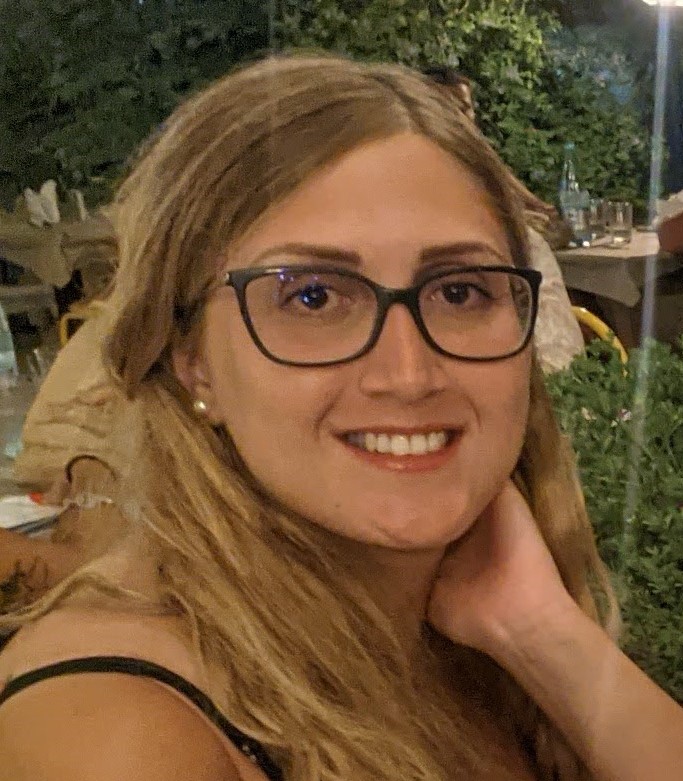
-
Silvia Cascianelli
- Postdoctoral fellow, Politecnico di Milano

-
Marco Masseroli
- Associate professor, Politecnico di Milano

-
Sofia Mongardi
- PhD student, Politecnico di Milano
Track Chairs

-
Elisa Ficarra
- Full Professor, University of Modena and Reggio Emilia

-
Paola Rebora
- Associate Professor, University of Milano-Bicocca
Steering Committee
- Roberto Tagliaferri, Università degli Studi di Salerno, Italy
- Davide Chicco, Università degli Studi di Milano-Bicocca, Italy
- Francesco Masulli, Università di Genova, Italy
- Elia Biganzoli, Università Statale di Milano, Italy
- Clelia Di Serio, Università Vita-Salute San Raffaele, Italy
- Pierre Baldi, University of California Irvine, USA
- Alexandru Floares, Solutions of Artificial Intelligence Applications Institute, Romania
- Jon Garibaldi, University of Nottingham, England
- Nikola Kasabov, Auckland University of Technology, New Zealand
- Leif Peterson, Rice University, USA
Local Committee
Advisory Board
- Elia Biganzoli, Università Statale di Milano, Italy
- Davide Chicco, Università degli Studi di Milano-Bicocca, Italy
- Francesca Ieva, Politecnico di Milano, Italy
- Giuseppe Jurman, Humanitas University, Italy
- Francesca Buffa, Università Bocconi, Italy
- Giulio Pavesi, Università Statale di Milano, Italy
- Nicole Soranzo, Human Technopole, Italy
- Beatrice Bodega, Istituto Nazionale di Genetica Molecolare, Italy
- Erika Salvi, IRCCS Istituto Neurologico “Carlo Besta”, Italy
- Paolo Verderio, IRCCS Istituto Nazionale dei Tumori, Italy
- Maddalena Fratelli, IRCCS Istituto Farmacologico "Mario Negri", Italy
- Marco Morelli, IRCCS Ospedale San Raffaele, Italy
- Francesco Ferrari, Istituto di Oncologia Molecolare IFOM, Italy
- Martin Hartmann Schaefer, Istituto Europeo di Oncologia, Italy
- Luciano Milanesi, Istituto di Tecnologie Biomediche - CNR, Italy
Organizers
- Data Science for Bioinformatics Lab
- Simone Tomè, Linda Maldera, Carlo Cipriani
- Francesco Gazzo, Francesca Pia Panaccione
Programme Committee
- Abbas Alameer, Kuwait University, Kuwait
- Alessandra Grossi, Università degli studi di Milano-Bicocca, Italy
- Alessia Levante, University of Parma, Italy
- Alessia Paglialonga, IEIIT National Research Council (CNR), Italy
- Alex Graudenzi, Institute of Molecular Bioimaging and Physiology, Consiglio Nazionale delle Ricerche (IBFM-CNR), Italy
- Alfredo Vellido, Universitat Politècnica de Catalunya, Spain
- Andrea Campagner, Università degli studi di Milano-Bicocca, Italy
- Andrea Sottosanti, University of Padova, Italy
- Anna Bernasconi, Politecnico di Milano, Italy
- Anna Maria Bianchi, Politecnico di Milano, Italy
- Annamaria Carissimo, Institute for Applied Mathematics of the National Council for Research (IAC-CNR), Italy
- Annamaria Defilippo, University Magna Graecia of Catanzaro, Italy
- Antonella Iuliano, University of Basilicata, Italy
- Antonino Aparo, Università di Verona, Italy
- Antonino Staiano, Università di Napoli Parthenope, Italy
- Antonio De Falco, Biogem, Italy
- Aurora Saibene, Università degli studi di Milano-Bicocca, Italy
- Barbara Di Camillo, University of Padova, Italy
- Barbara Puccio, University of Catanzaro, Italy
- Benoit Liquet, Macquarie University, Australia
- Biswarup Ganguly, National Institute of Technology Silchar, India
- Bruno Giovanni Galuzzi, Università degli studi di Milano-Bicocca, Italy
- Camillo Porcaro, University of Padova, Italy
- Carlo Cipriani, Politecnico di Milano, Italy
- Carlo Ferrari, University of Padova, Italy
- Carlo Maj, Centre for Human Genetics, University of Marburg, Germany
- Carmelo Militello, Institute for High-Performance Computing and Networking, National Research Council (ICAR-CNR), Italy
- Chiara Damiani, Università degli studi di Milano-Bicocca, Italy
- Chiara Tarracchini, University of Parma, Italy
- Christian Milani, University of Parma, Italy
- Cinzia Pizzi, University of Padova, Italy
- Corrado Lanera, University of Padova, Italy
- Cristina Crocamo, Università degli studi di Milano-Bicocca, Italy
- Daniela Besozzi, Università degli studi di Milano-Bicocca, Italy
- Daniela D'Auria, Free University of Bozen-Bolzano, Italy
- Daniele Baccega, University of Torino, Italy
- Dario Righelli, University of Padova, Italy
- David Dannhauser, Istituto Italiano di tecnologia, Italy
- Davide Bacciu, University of Pisa, Italy
- Davide Bressan, University of Trento, Italy
- Davide Chicco, Università degli studi di Milano-Bicocca, Italy
- Diogo Soares, University of Lisbon, Portugal
- Elia Biganzoli, University of Milan, italy
- Elisa Ficarra, Università di Modena e Reggio Emilia, Italy
- Emanuel Di Nardo, Università di Napoli Parthenope, Italy
- Emanuela Merelli, University of Camerino, Italy
- Emiliano Maresi, University of Parma, Italy
- Enrico Longato, Enrico Longato, University of Padova, Italy
- Erica Tavazzi, Enrico Longato, University of Padova, Italy
- Erika Salvi, IRCCS Istituto Neurologico Carlo Besta, Milan, Italy
- Eva Viesi, Università di Verona, Italy
- Fabio Cumbo, Genomic Medicine Institute, Lerner Research Institute, Cleveland Clinic, USA
- Filippo Causa, University of Naples, Italy (Federico II), Italy
- Filippo Geraci, Institute for Informatics and Telematics of C.N.R., Italy
- Filippo Utro, IBM, USA
- Filippo Vella, National Research Council of Italy, Italy
- Francesca Gasparini, Università degli studi di Milano-Bicocca, Italy
- Francesca Pia Panaccione, Politecnico di Milano, Italy
- Francesco Gazzo, Politecnico di Milano, Italy
- Francesco Lapi, Università degli studi di Milano-Bicocca, Italy
- Francesco Napolitano, Università degli Studi del Sannio, Italy
- Francesco Nascimben, University of Udine, Italy
- Francesco Prendin, University of Padova, Italy
- Francesco Prinzi, University of Palermo, Italy
- Gabriele Andrea Lugli, University of Parma, Italy
- Gaia Locatelli, Università degli studi di Milano-Bicocca, Italy
- Giacomo Baruzzo, University of Padova, Italy
- Giacomo Cappon, University of Padova, Italy
- Giancarlo Mauri, Università degli studi di Milano-Bicocca, Italy
- Giosuè Lo Bosco, Universita' di Palermo, Italy
- Giovanni Cicceri, University of Palermo, Italy
- Giulia Cesaro, University of Padova, Italy
- Giulia Rizzi, Università degli studi di Milano-Bicocca, Italy
- Giuseppe Agapito, Università Magna Graecia di Catanzaro, Italy
- Giuseppe Jurman, Fondazione Bruno Kessler, Italy
- Gospel Ozioma Nnadi, Università di Verona, Italy
- Henrik Imberg, University of Gothenburg, Germany
- Hugo López-Fernández, Universidade de Vigo, Spain
- Ignacio Rojas, University of Granada, Italy
- Ilaria Billato, University of Padova, Italy
- Irene Terrone, University of Torino, Italy
- Isotta Trescato, University of Padova, Italy
- Jake Chen, University of Alabama at Birmingham, USA
- Ka-Chun Wong, City University of Hong Kong, China
- Kritika Chugh, University of Texas at Dallas, USA
- Krzysztof Bartoszek, Linkoping University, Sweden
- Laura Veschetti, Università di Verona, Italy
- Leonardo Pellegrina, University of Padova, Italy
- Letizia Squarcina, University of Milan, italy
- Lidia Ghosh, RCC Institute of Information Technology, India
- Linda Maldera, Politecnico di Milano, Italy
- Lorenzo Dall'Olio, IRCCS Istituto delle Scienze Neurologiche di Bologna, Italy
- Lorenzo Di Rocco, Sapienza University of Rome, Italy
- Luca Oneto, Università di Genova, Italy
- Luciano Garofano, University of Miami, USA
- Luigi Cerulo, Università degli Studi del Sannio, Italy
- Maddalena Maria Bolognesi, CNR, Italy
- Maie Bachmann, Tallinn University Of Technology, Estonia
- Manuel Tognon, Università di Verona, Italy, Italy
- Marco Chierici, Fondazione Bruno Kessler, Italy
- Marco Cremaschi, Università degli studi di Milano-Bicocca, Italy
- Marco Falda, University of Padova, Italy
- Marco Ferilli, Sapienza University of Rome, Italy
- Marco Masseroli, Politecnico di Milano, Italy
- Maria Claudia Costa, University of Naples, Italy (Federico II), Italy
- Maria Picchio, IRCCS Ospedale San Raffaele, Italy
- Maria Raposo, Universidade NOVA de Lisboa, Portugal
- Marta Cipriani, Sapienza University of Rome, Italy
- Marta Lovino, Università di Modena e Reggio Emilia, Italy
- Martina Vettoretti, University of Padova, Italy
- Martina Vettoretti, University of Padova, Italy
- Marzio Pennisi, University of Eastern Piedmont, Italy
- Massimo Bellato, University of Padova, Italy
- Matteo Baldan, University of Padova, Italy
- Matteo Bregonzio, 81Watts, Italy
- Matteo Comin, University of Padova, Italy
- Matteo Pozzi, Fondazione Bruno Kessler, Italy
- Matthijs Warrens, University of Groningen, Netherlands
- Michele Tebaldi, Università di Verona, Italy
- Mihail Popescu, University of Missouri, USA
- Mikele Milia, University of Padova, Italy
- Mirko Treccani, Università di Verona, Italy
- Nicola Licheri, University of Torino, Italy
- Olga Valenzuela, University of Granada, Spain
- Paola Mapelli, IRCCS Ospedale San Raffaele, Italy
- Paola Rebora, Università degli studi di Milano-Bicocca, Italy
- Paolo Cazzaniga, University of Bergamo, Italy
- Paolo Soda, Università Campus Bio-Medico di Roma, Italy
- Pasquale Memmolo, Istituto di Scienze Applicate e Sistemi Intelligenti "Eduardo Caianiello", Italy
- Patrizia Vizza, University Magna Graecia of Catanzaro, Italy
- Paulo Lisboa, Liverpool John Moores University, Italy
- Pierangelo Veltri, Università della Calabria, Italy
- Pietro Belloni, University of Padova, Italy
- Pietro Hiram Guzzi, University Magna Graecia of Catanzaro, Italy
- Pietro Pinoli, Politecnico di Milano, Italy
- Raffaele Marchesi, Politecnico di Milano, Italy
- Riccardo Ceccaroni, Sapienza University of Rome, Italy
- Riccardo Rizzo, Institute for High-Performance Computing and Networking, National Research Council (ICAR-CNR), Italy
- Roberta Sirovich, Università di Torino, Italy
- Roberto Gatta, University of Brescia, Italy
- Roberto Pagliarini, University of Udine, Italy
- Roberto Tagliaferri, Università degli Studi di Salerno, Italy
- Rosalba Giugno, Università di Verona, Italy, Italy
- Rosario Michael Piro, Politecnico di Milano, Italy
- Rossella Tufano, University of Naples, Italy (Federico II), Italy
- Salvatore Calderaro, University of Palermo, Italy
- Samuele Ghezzo, IRCCS Ospedale San Raffaele, Italy
- Sara Montagna, Università degli Studi di Urbino Carlo Bo, Italy
- Sara Nocco, Università degli studi di Milano-Bicocca, Italy
- Sean Holden, University of Cambridge, UK
- Shahryar Noei, Fondazione Bruno Kessler, Italy
- Silvia Cascianelli, Politecnico di Milano, Italy
- Silvia Petraro, University of Parma, Italy
- Simone Avesani, Università di Verona, Italy
- Simone Pernice, Università di Torino, Italy
- Simone Tomè, Politecnico di Milano, Italy
- Sofia Mongardi, Politecnico di Milano, Italy
- Stefania Coelli, Politecnico di Milano, Italy
- Stefania Orini, University of Brescia, Italy, IRCCS Istituto Centro San Giovanni di Dio Fatebenefratelli, Brescia, Italy
- Teresa Di Bella, Università degli studi di Milano-Bicocca, Italy
- Tiziana Sanavia, University of Torino, Italy
- Ugo Lomoio, University Magna Graecia of Catanzaro, Italy
- Umberto Ferraro Petrillo, Sapienza University of Rome, Italy
- Valentina Bollati, University of Milan, italy
- Vasco Coelho, Università degli studi di Milano-Bicocca, Italy
- Veronica Vinciotti, University of Trento, Italy
- Vincenzo Bonnici, University of Parma, Italy
- Wei Liu Fujian, Agriculture and Forestry University, China
- Youngro Lee, Seoul National University, South Korea
Past editions
Conference websites
- CIBB 2024, Benevento, Italy
- CIBB 2023, Padova, Italy
- CIBB 2021, Virtual
- CIBB 2019, Bergamo, Italy
- CIBB 2018, Caparica, Portugal
- CIBB 2017, Cagliari, Italy
- CIBB 2016, Stirling, Scotland
- CIBB 2015, Naples, Italy
- CIBB 2014, Cambridge, England
- CIBB 2013 (co-organized with PRIB 2013), Nice, France
- CIBB 2012, Houston, Texas, USA
- CIBB 2011, Gargnano, Italy
- CIBB 2010, Palermo, Italy
- CIBB 2009, Genoa, Italy
- CIBB 2008, Vietri sul Mare, Italy
- CIBB 2007 (within WILF 2007), Camogli, Italy
- CIBB 2006 (within FLINS 2006), Genoa, Italy
- CIBB 2005 (within WILF 2005), Crema, Italy
- CIBB 2004 (within WIRN 2004), Perugia, Italy
Conference proceeding
- Proceedings of CIBB 2024, Springer Lectures Notes in Bioinformatics (LNBI) series
- Proceedings of CIBB 2023, Springer Lectures Notes in Bioinformatics (LNBI) series
- Proceedings of CIBB 2021, Springer Lectures Notes in Bioinformatics (LNBI) series
- Proceedings of CIBB 2019, Springer Lectures Notes in Bioinformatics (LNBI) series
- Proceedings of CIBB 2018, Springer Lectures Notes in Bioinformatics (LNBI) series
- Proceedings of CIBB 2017, Springer Lectures Notes in Bioinformatics (LNBI) series
- Proceedings of CIBB 2016, Springer Lectures Notes in Bioinformatics (LNBI) series
- Proceedings of CIBB 2015, Springer Lectures Notes in Bioinformatics (LNBI) series
- Proceedings of CIBB 2014, Springer Lectures Notes in Bioinformatics (LNBI) series
- Proceedings of CIBB 2013, Springer Lectures Notes in Bioinformatics (LNBI) series
- Proceedings of CIBB 2012, Springer Lectures Notes in Bioinformatics (LNBI) series
- Proceedings of CIBB 2011, Springer Lectures Notes in Bioinformatics (LNBI) series
- Proceedings of CIBB 2010, Springer Lectures Notes in Bioinformatics (LNBI) series
- Proceedings of CIBB 2009, Springer Lectures Notes in Bioinformatics (LNBI) series
- Proceedings of CIBB 2008, Springer Lectures Notes in Bioinformatics (LNBI) series
- Proceedings of CIBB 2007 within the WILF 2007 proceedings, Springer Applications of Fuzzy Sets Theory series
- Proceedings of CIBB 2006 within the FLINS 2006 proceedings, World Scientific Applied Artificial Intelligence series
- Proceedings of CIBB 2005 within the WILF 2005 proceedings, Springer Fuzzy Logic and Applications series
- Proceedings of CIBB 2004 within the WIRN 2004 proceedings, Springer Biological and Artificial Intelligence Environments series
Journal supplements
- CIBB 2023 Supplement of BMC Medical Informatics and Decision Making
- CIBB 2021 Supplement of BMC Bioinformatics
- CIBB 2019 Special Session on Machine Learning in Healthcare Informatics and Medical Biology Supplement of BMC Medical Informatics and Decision Making
- CIBB 2018 & CIBB 2019 Supplement of BMC Medical Informatics and Decision Making
- CIBB 2018 & CIBB 2019 Supplement of BMC Bioinformatics
- CIBB 2015 & CIBB 2016 Supplement of BMC Bioinformatics
- CIBB 2013 Supplement of BMC Bioinformatics
- CIBB 2010 Supplement of BMC Bioinformatics
- CIBB 2008 Supplement of Soft Computing
- CIBB 2007 Supplement of Artificial Intelligence in Medicine
- CIBB 2005 Supplement of the International Journal of Approximate Reasoning
Contacts

Email - Administrative Secretariat
cibb2025@promoest.com
Email - Scientific Secretariat
cibb2025@polimi.it

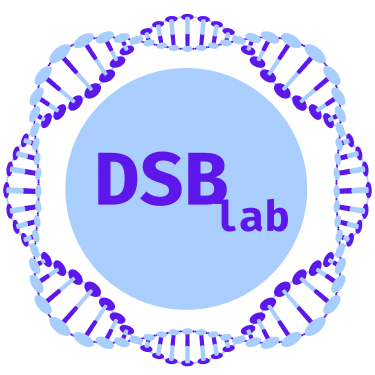
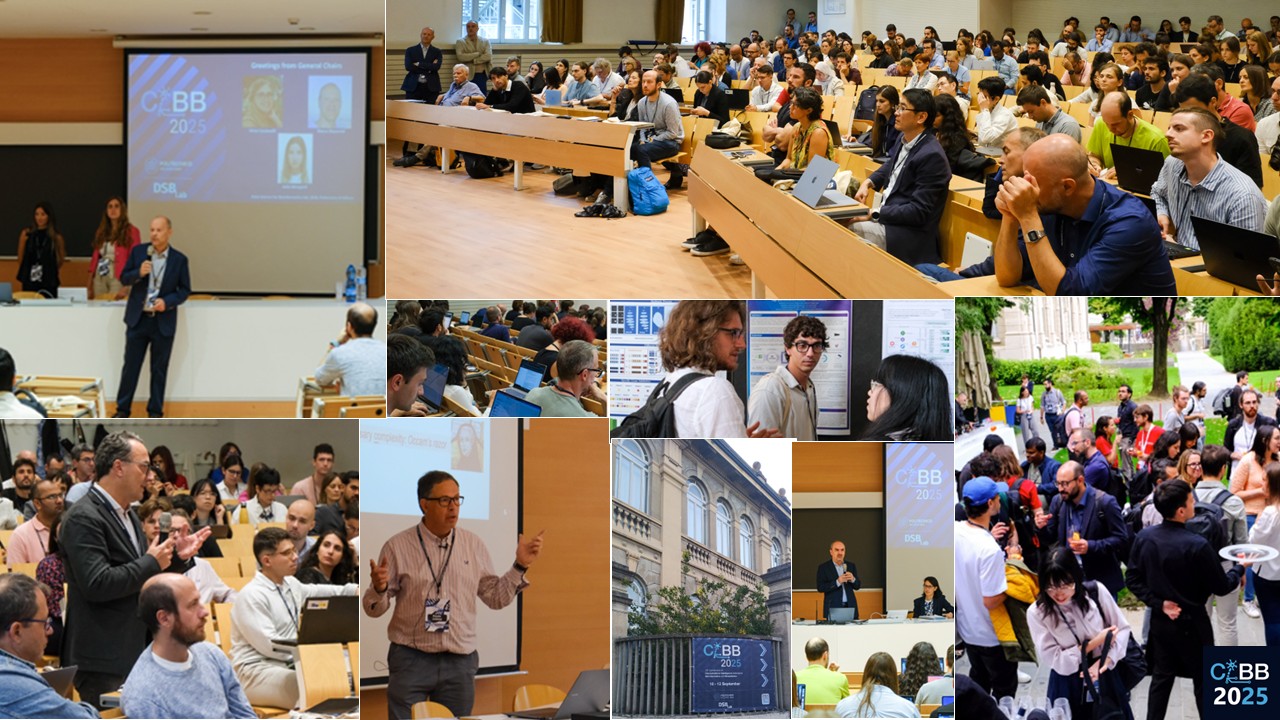
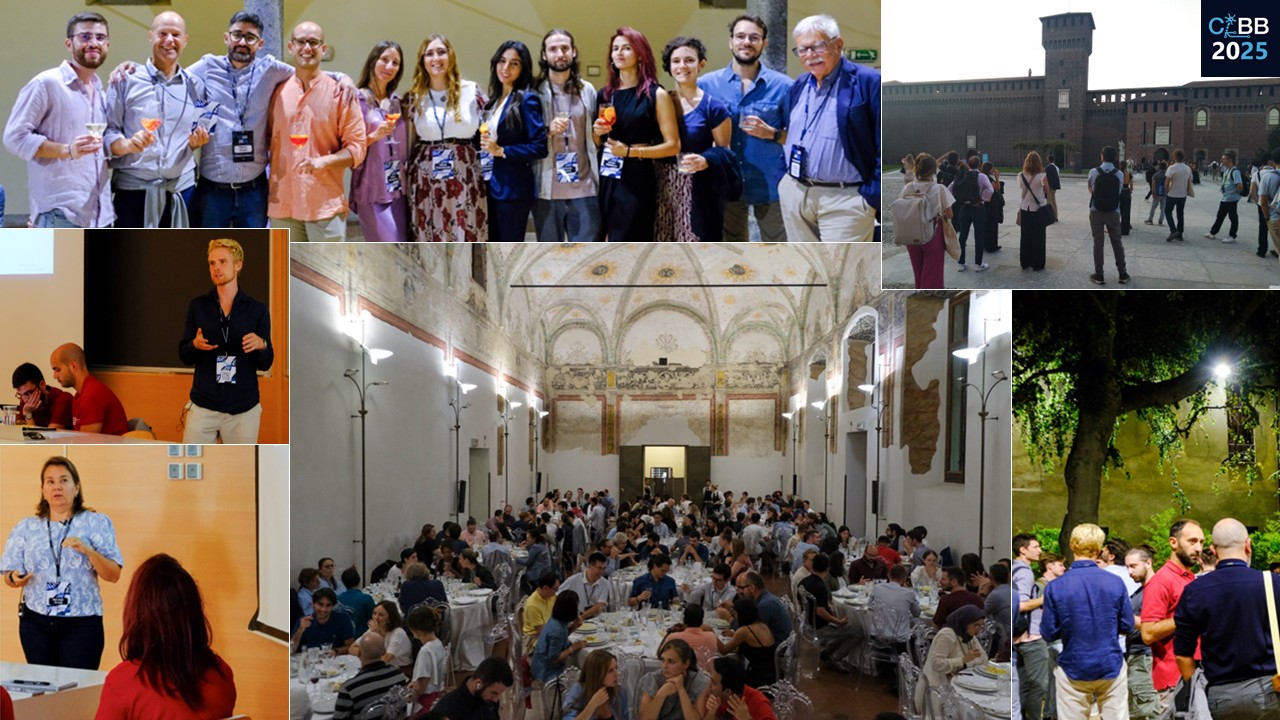
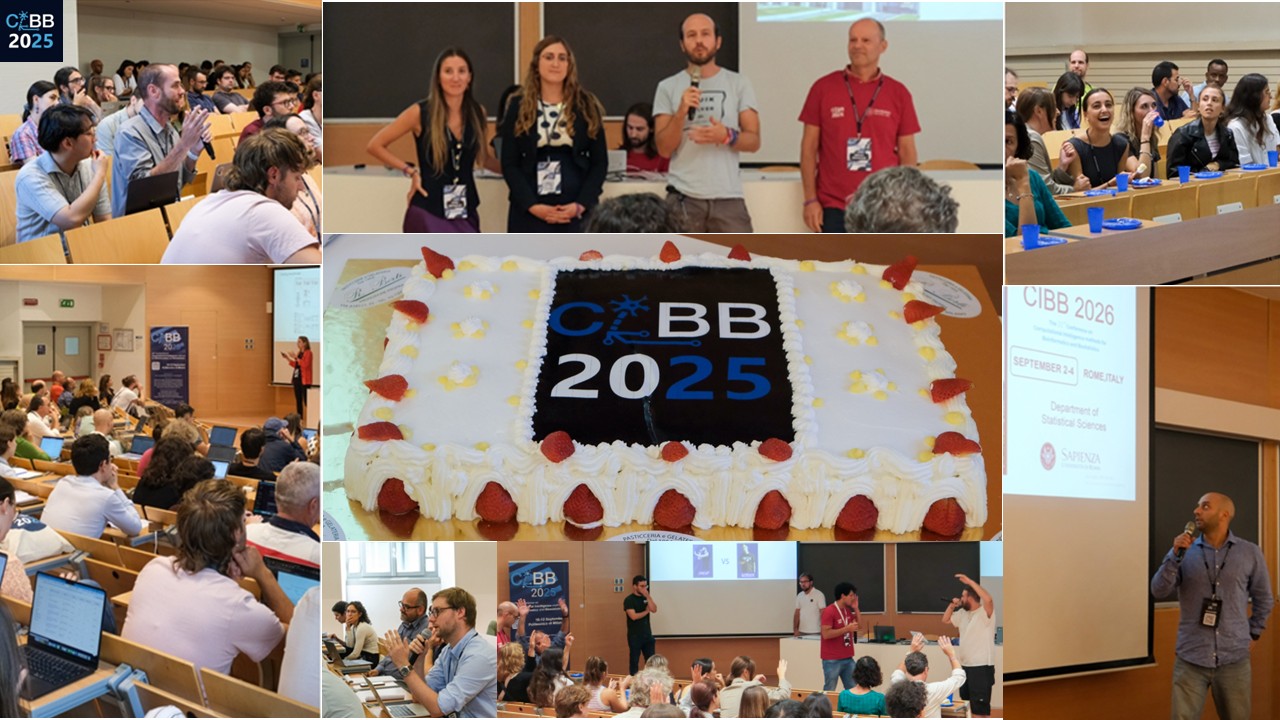



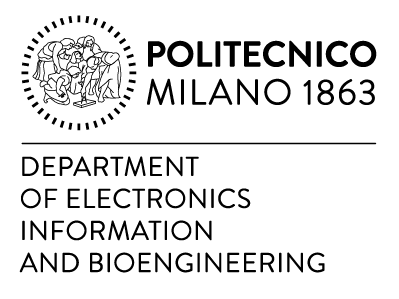


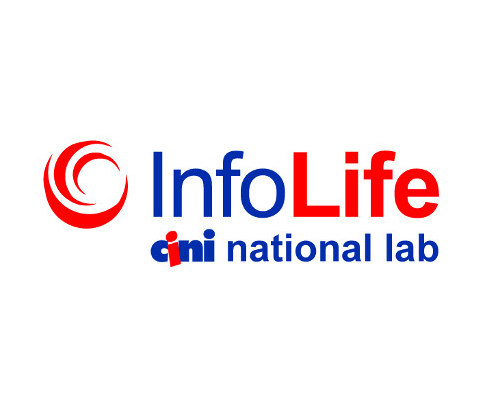





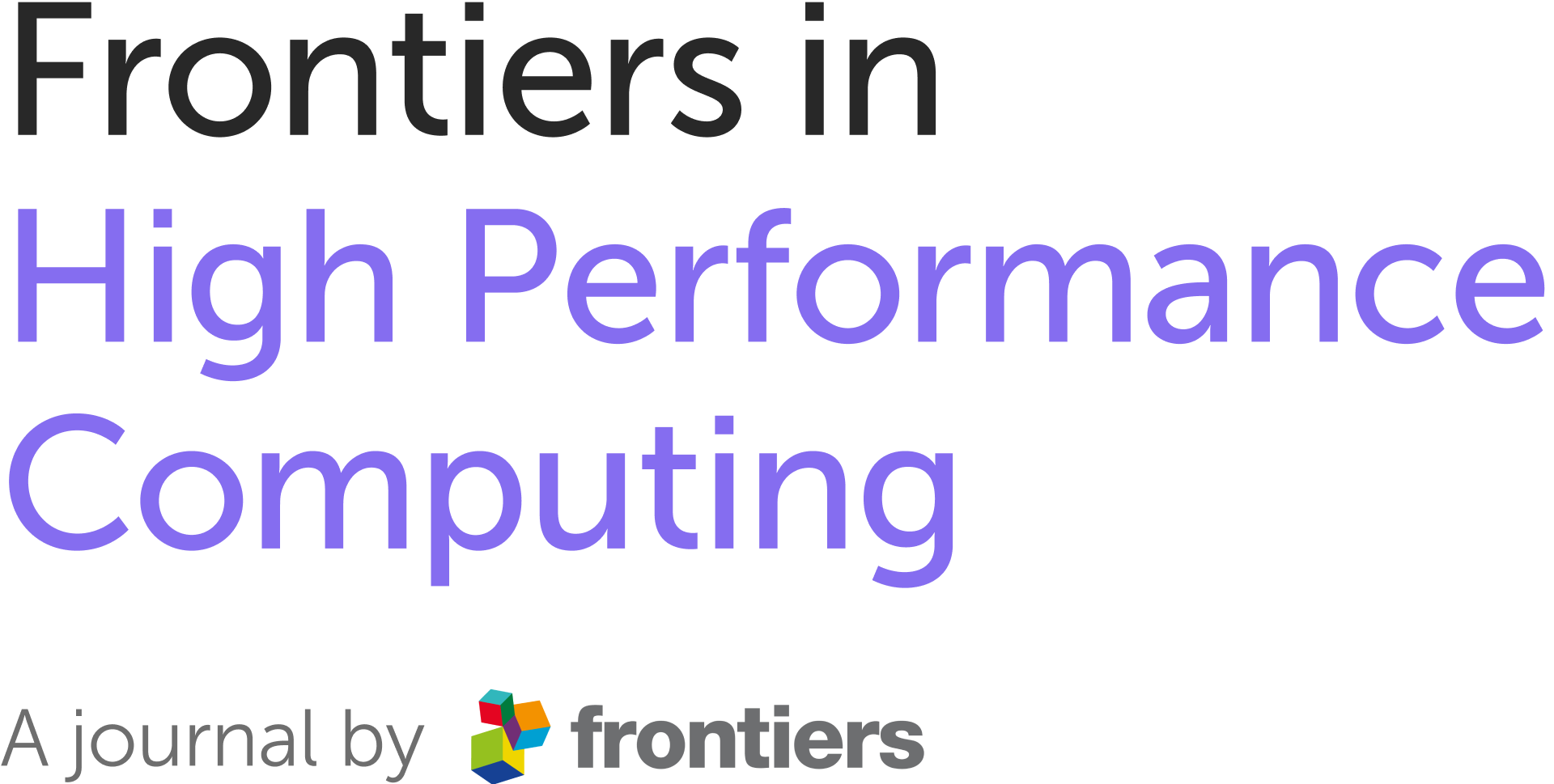
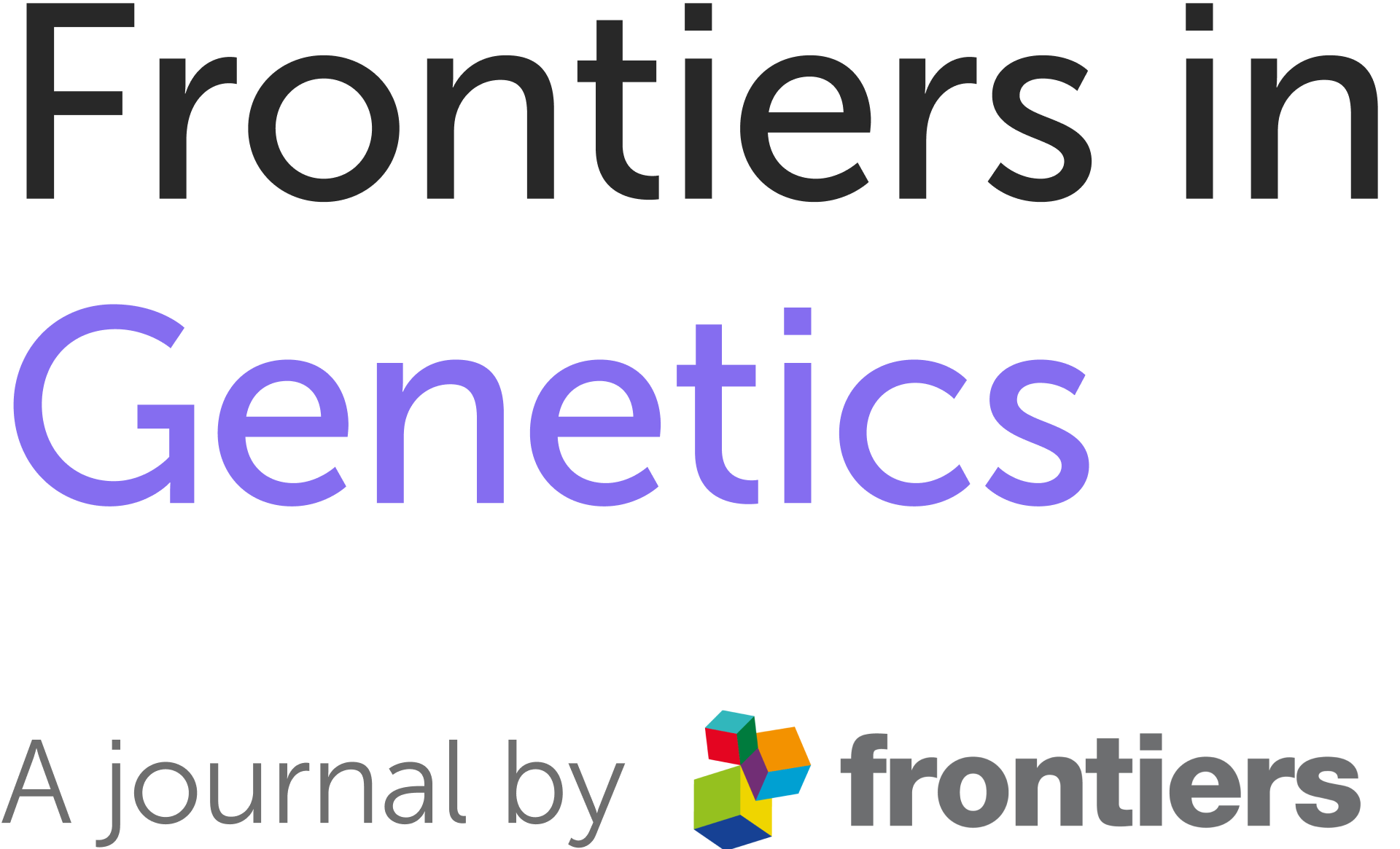



Social dinner
The Conference Social Dinner will be on Thursday, September 11th, at the Cloisters of San Barnaba, with, an esclusive medievale venue. The social dinner will start at 20.15 and the address is: Cloisters of San Barnaba, Via S. Barnaba, 48, 20122, Milan.
We kindly remind you that the Social Dinner is included for all participants with a Full or Student/Retired Plus registration fee. Please let the staff know if you cannot participate.